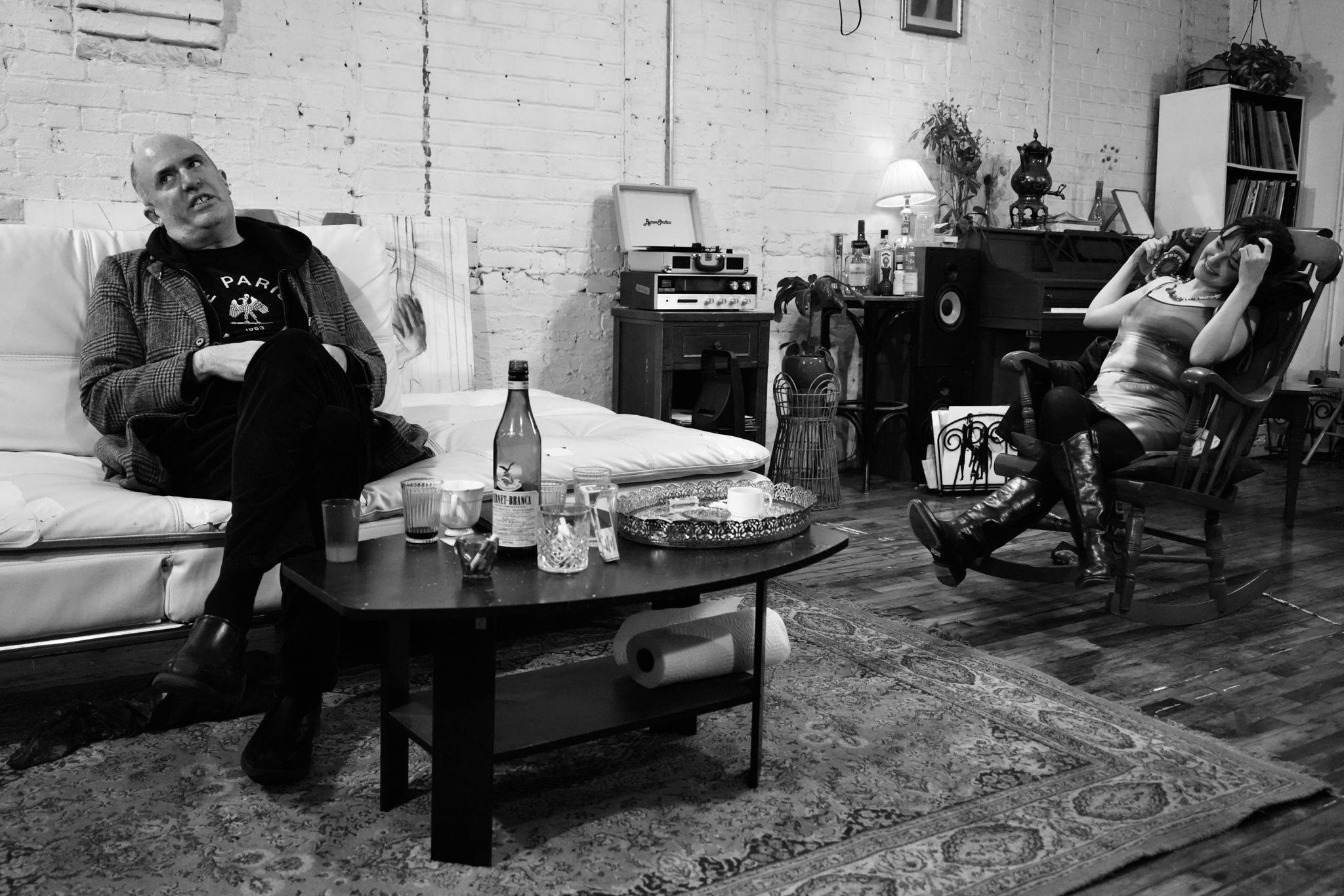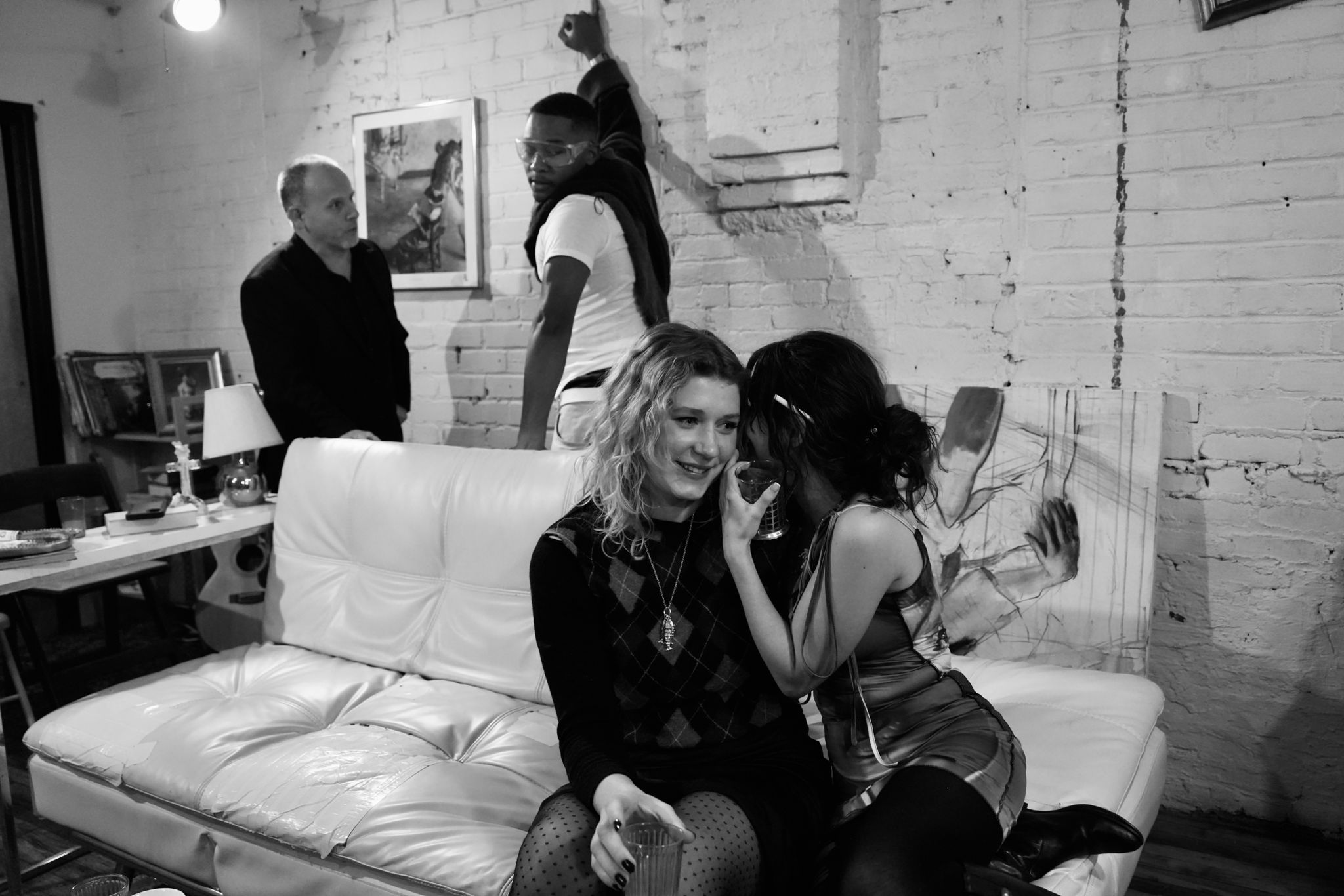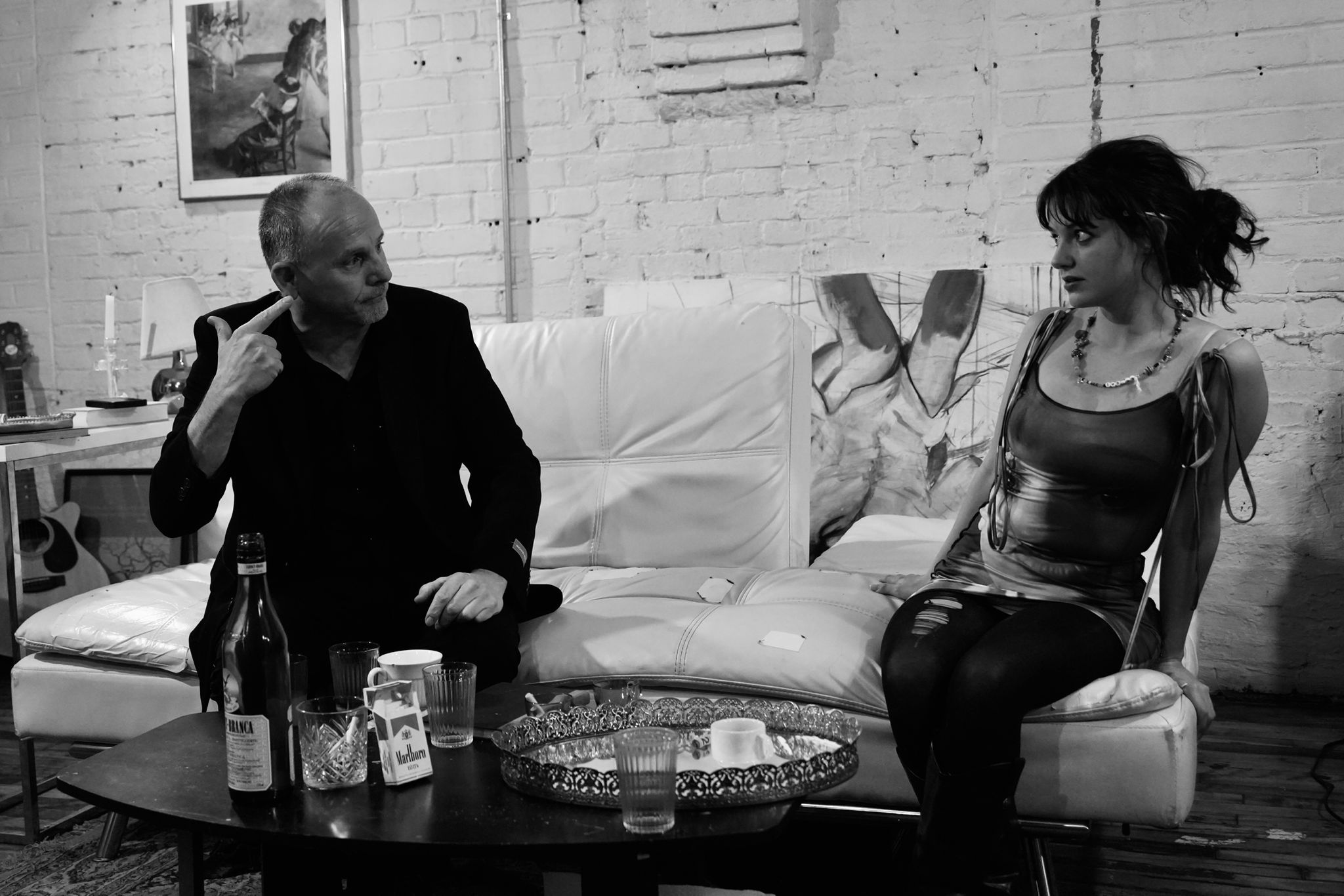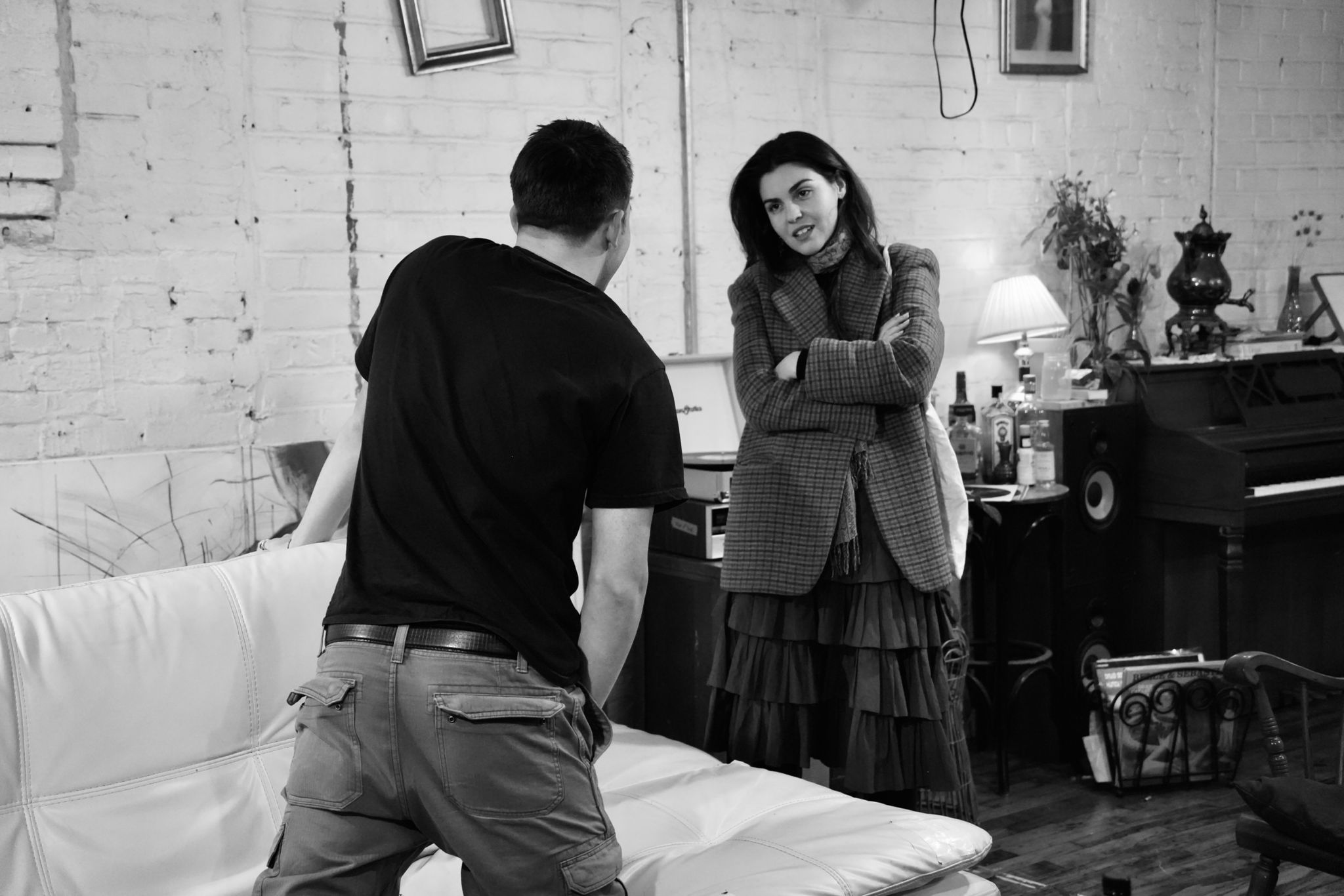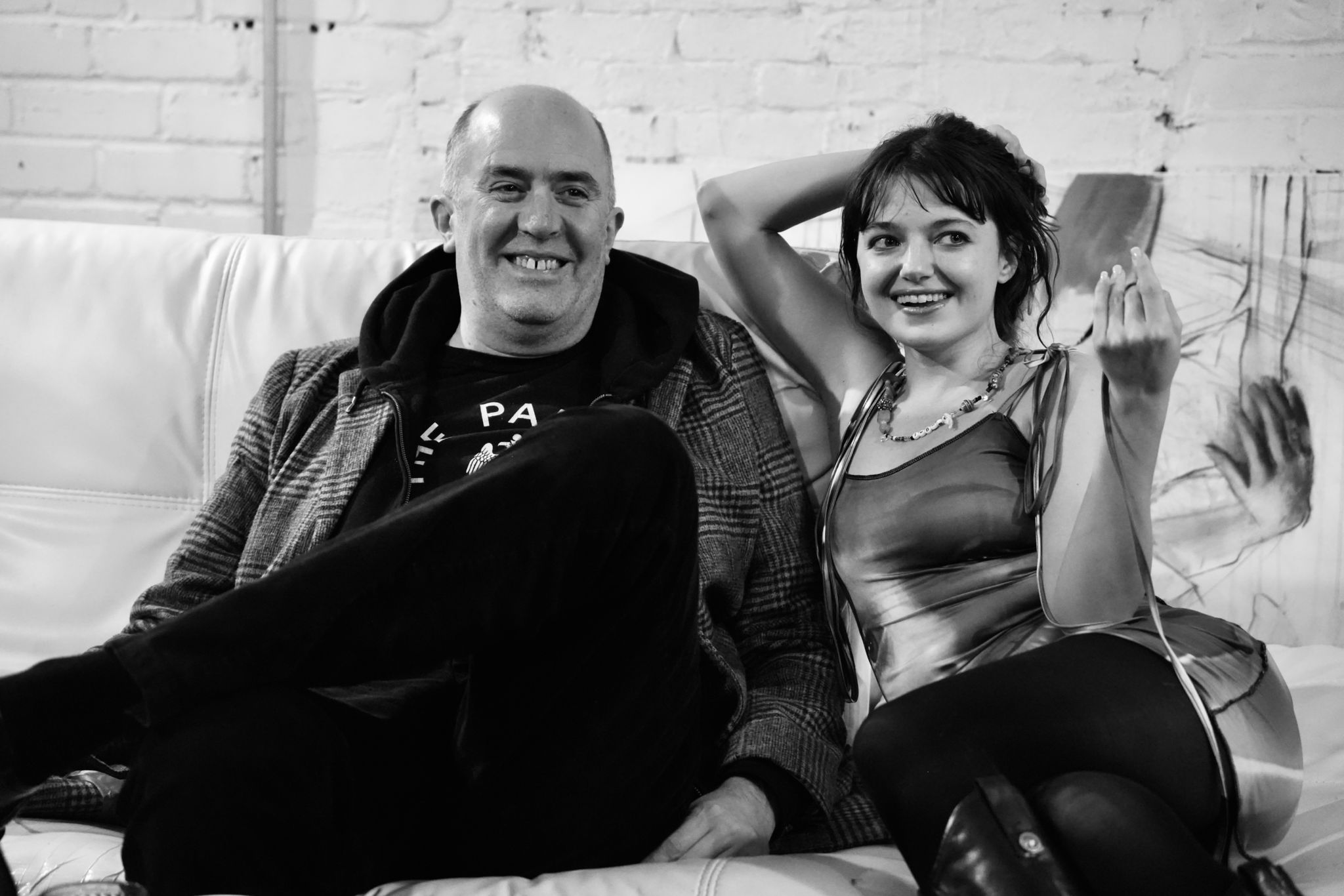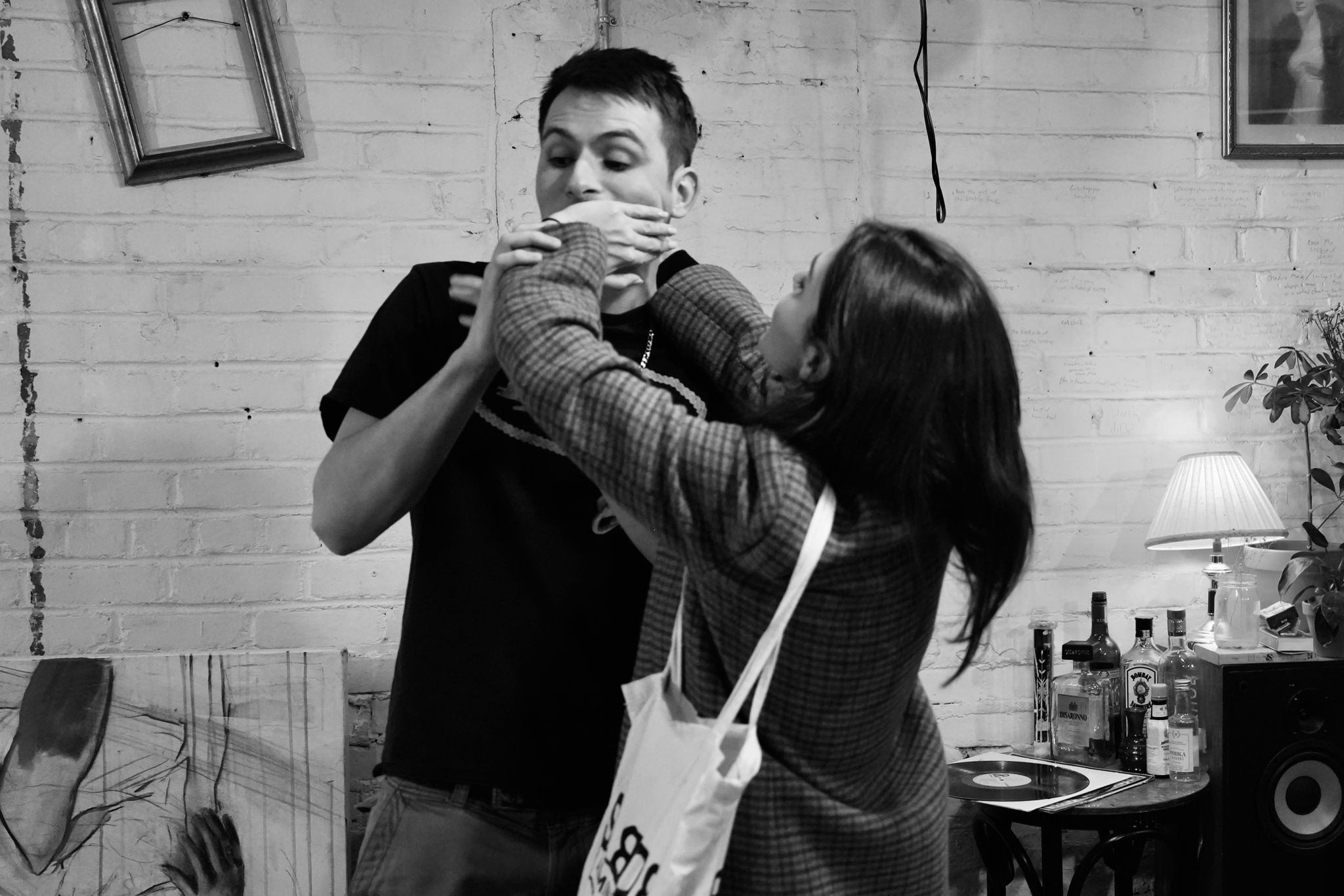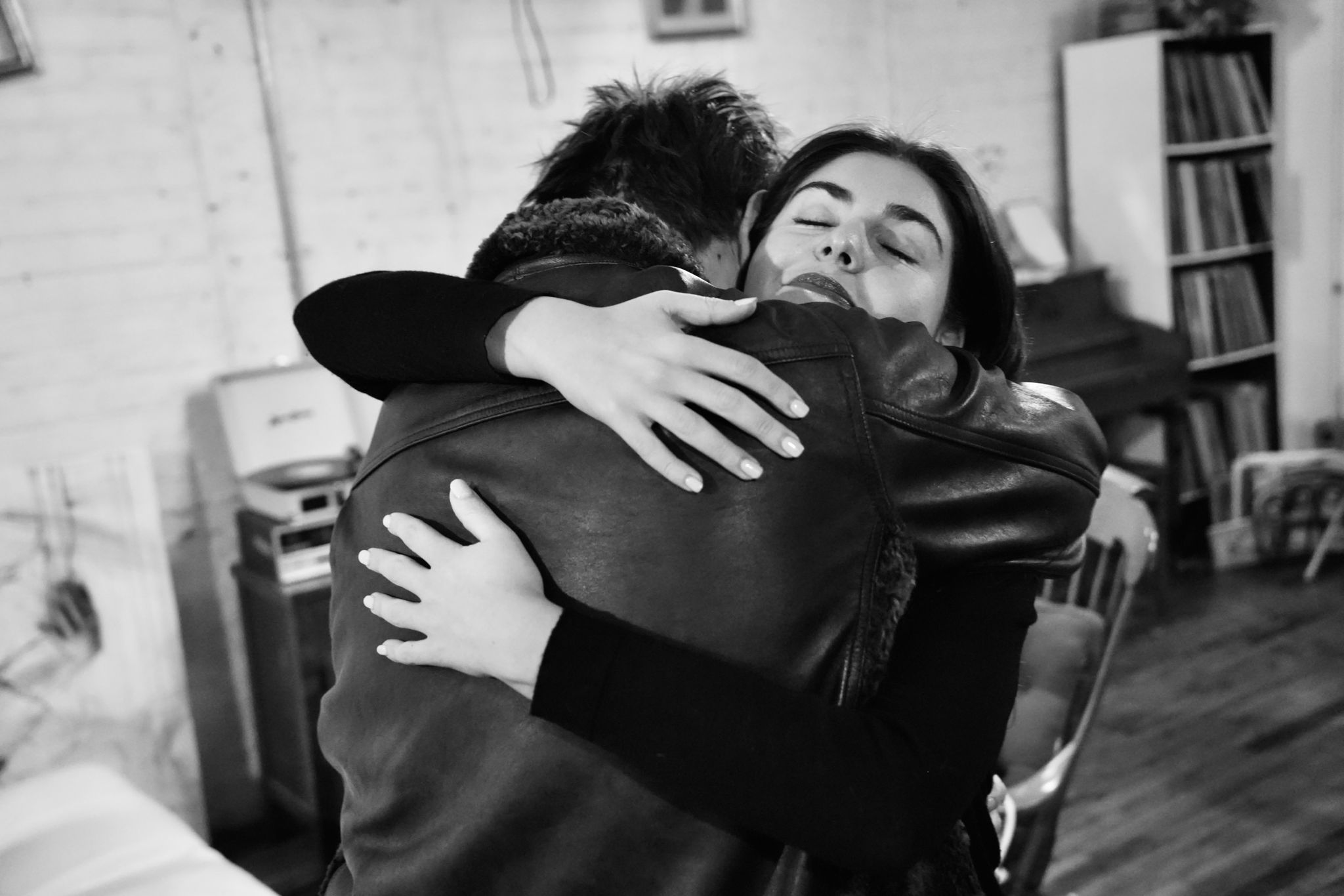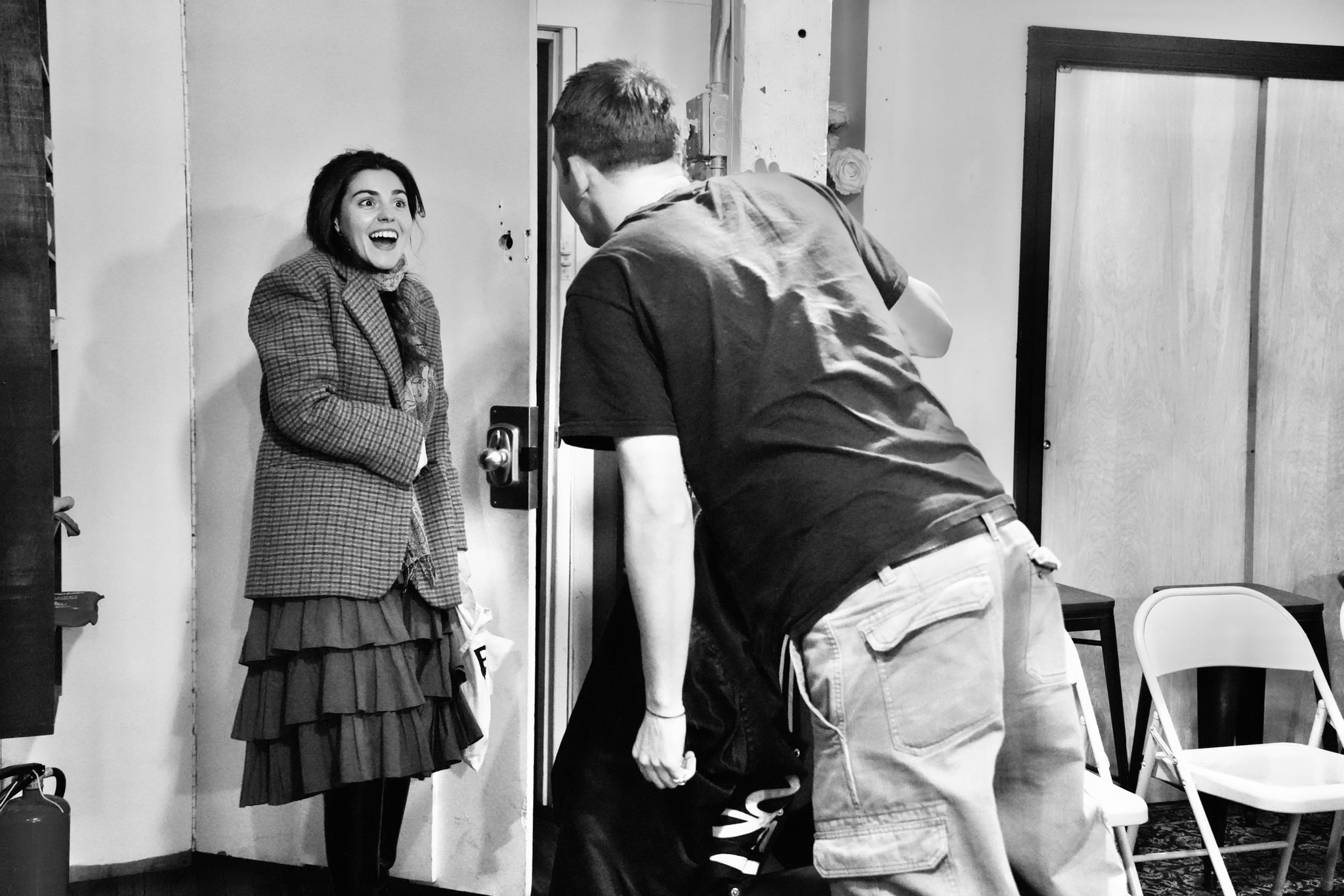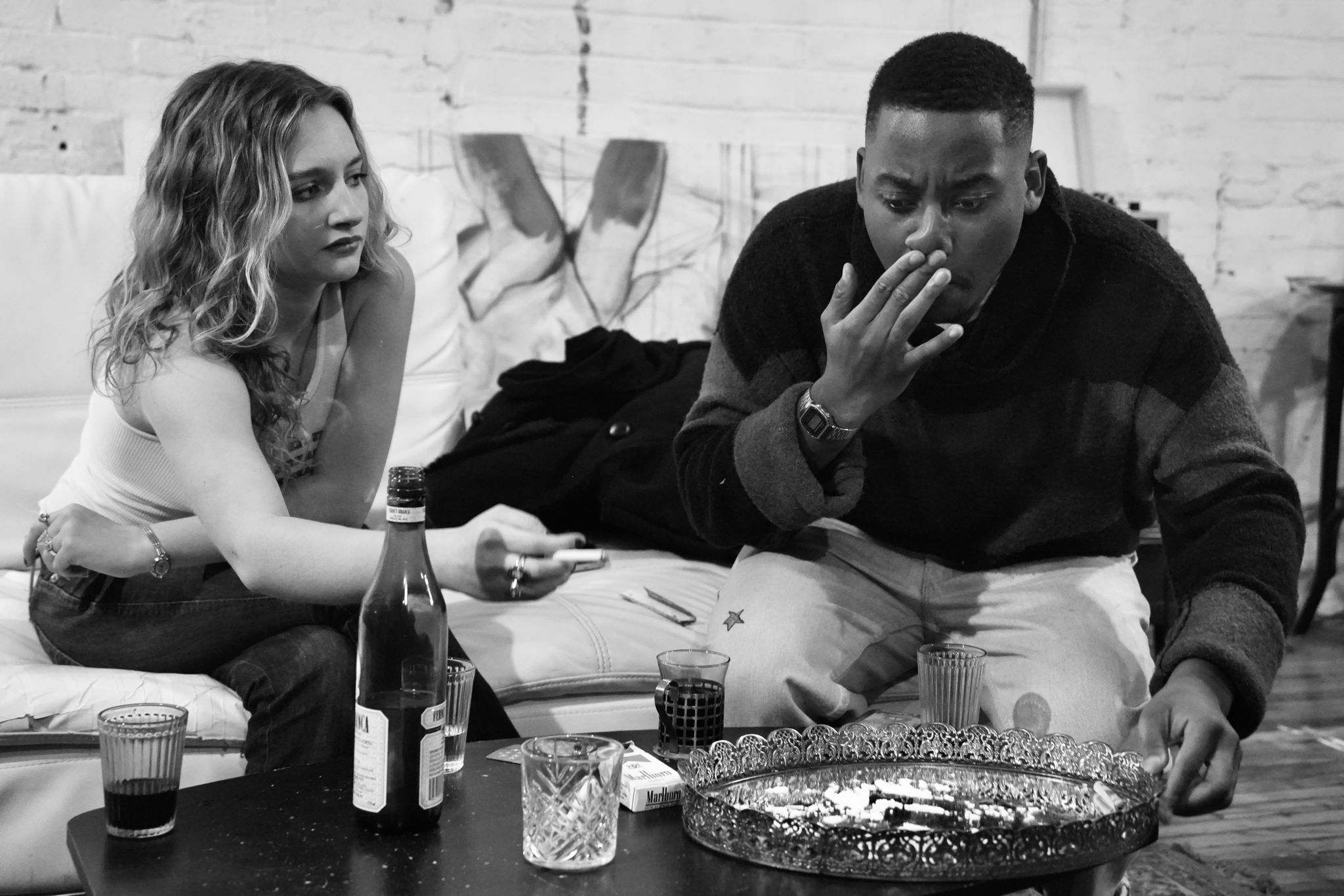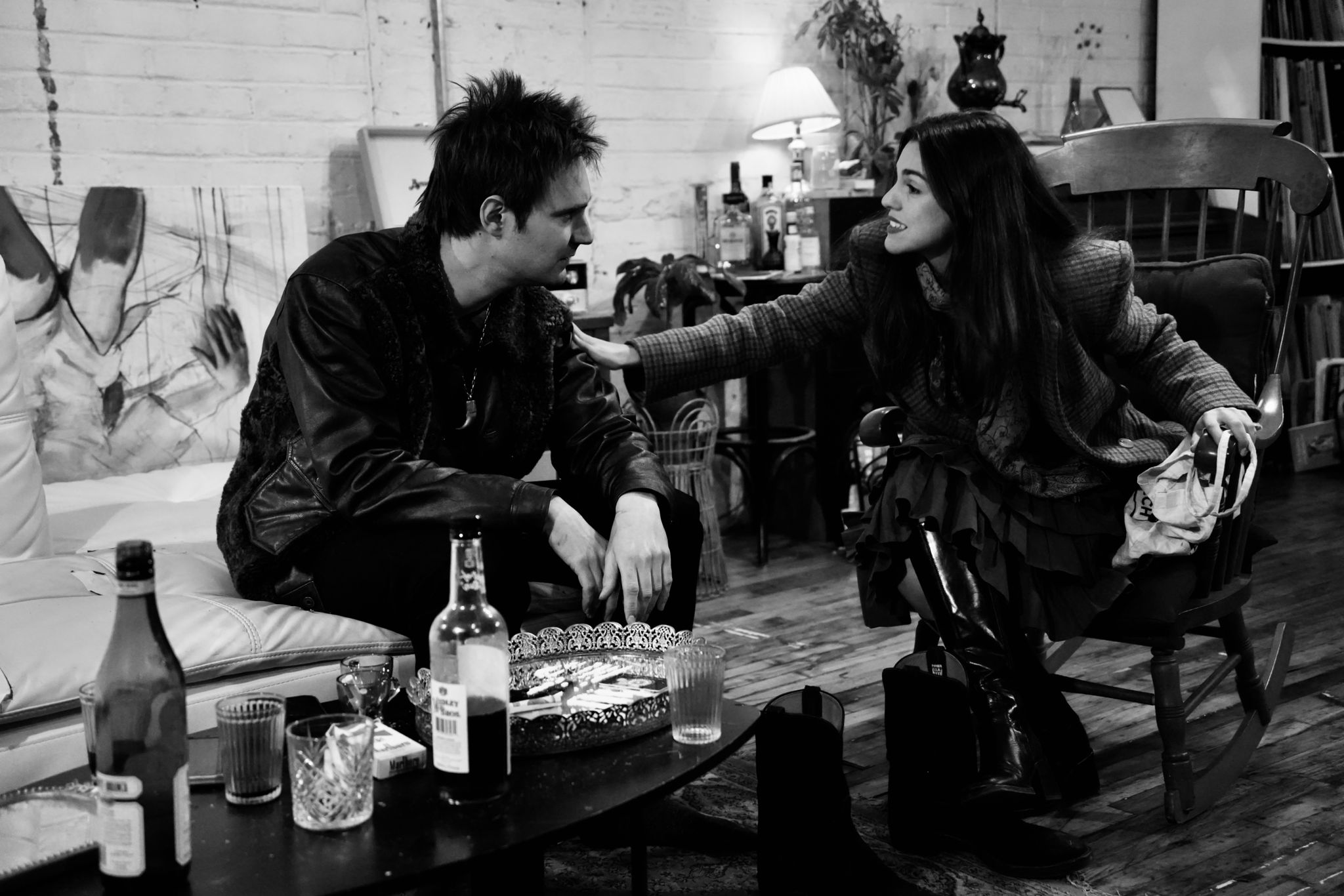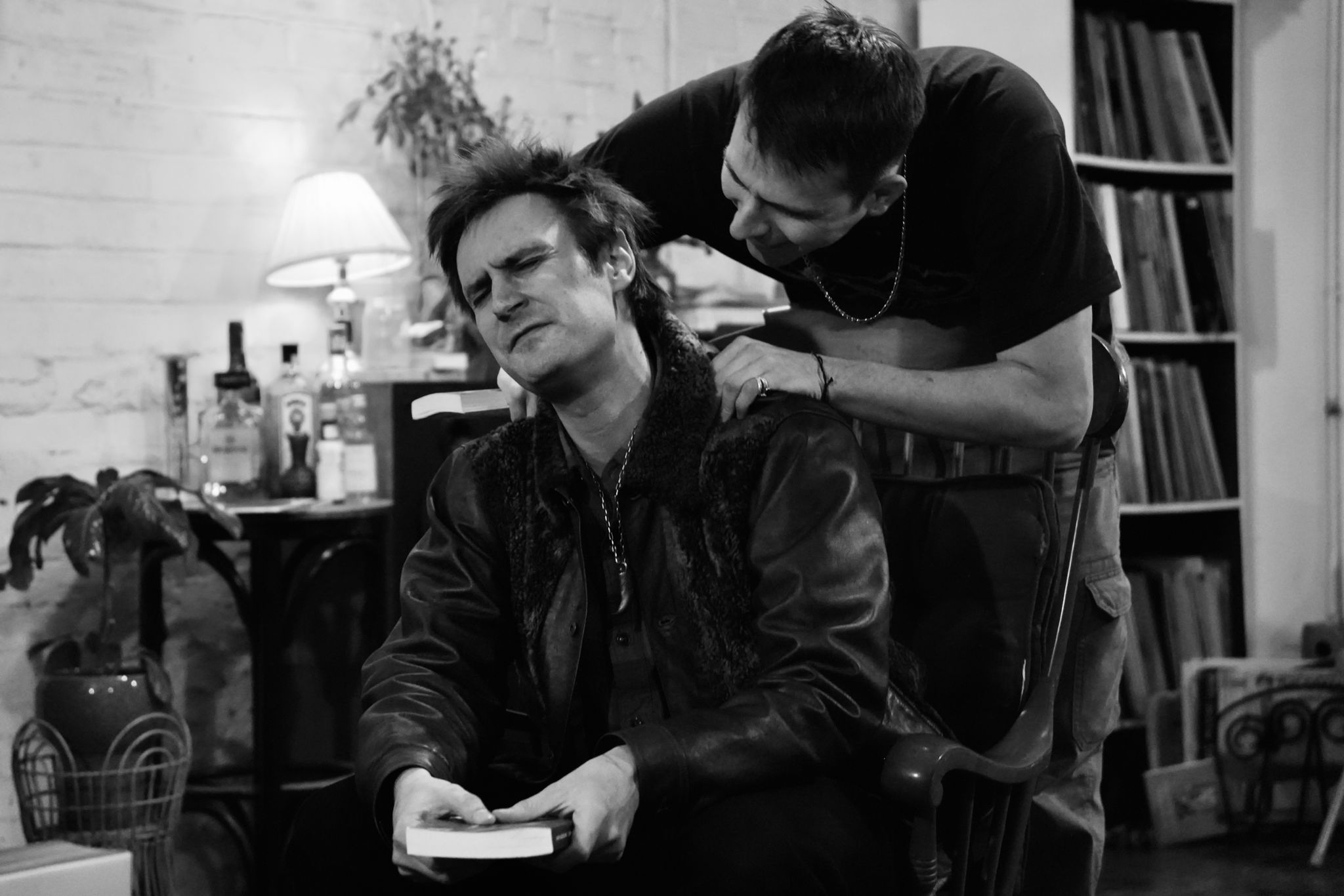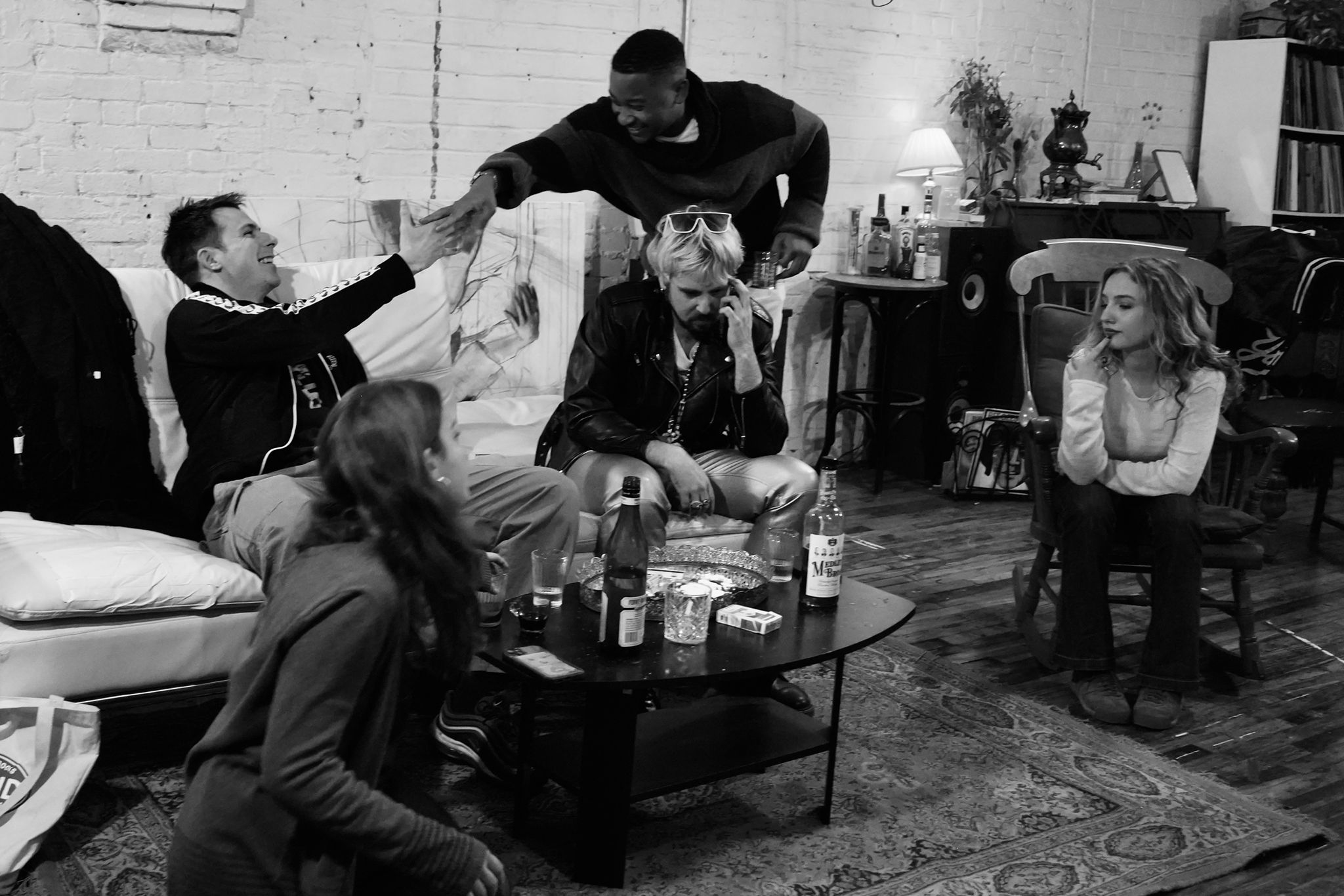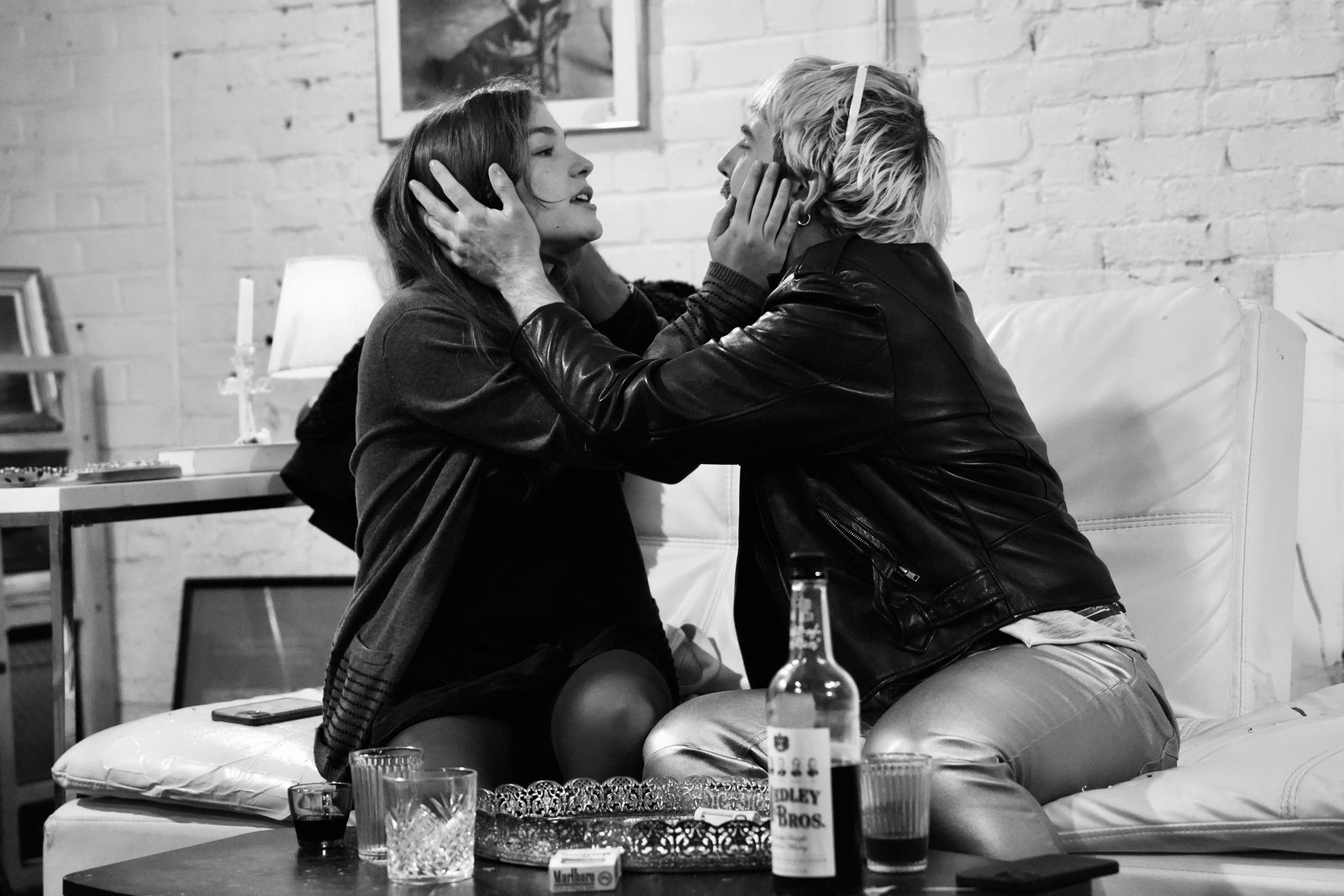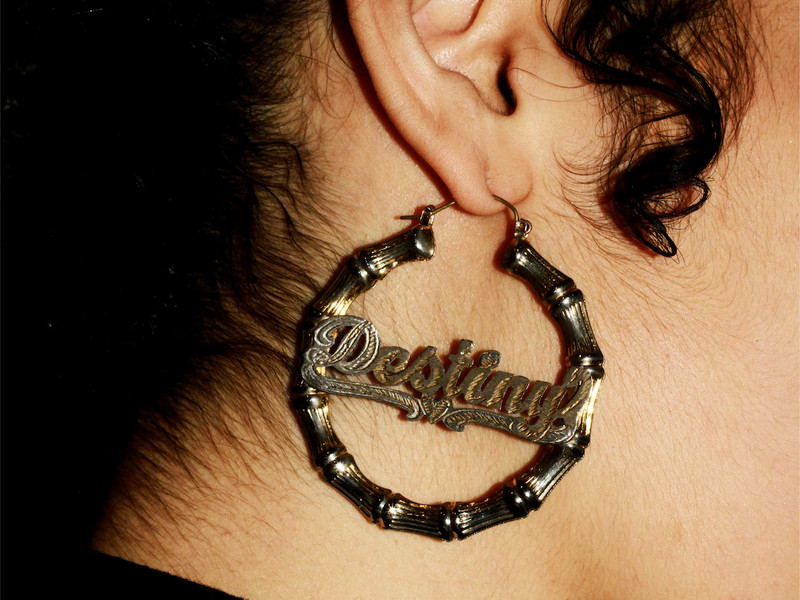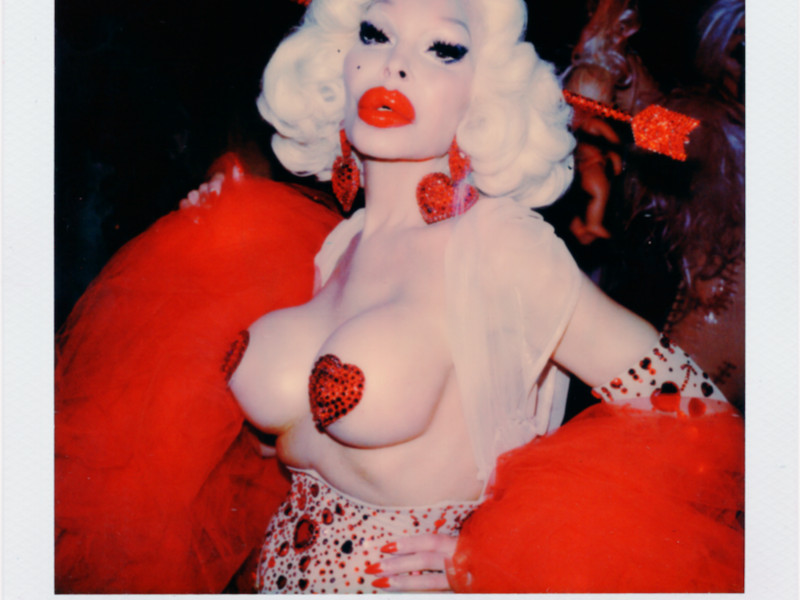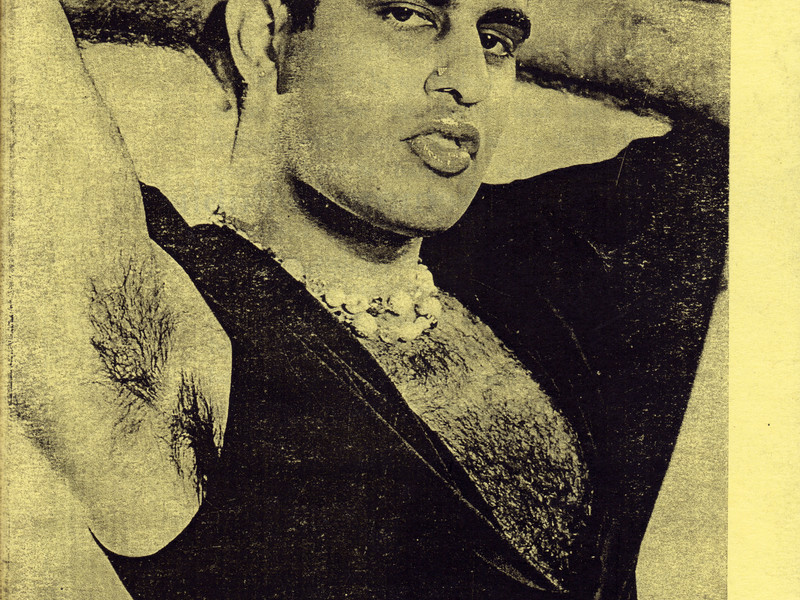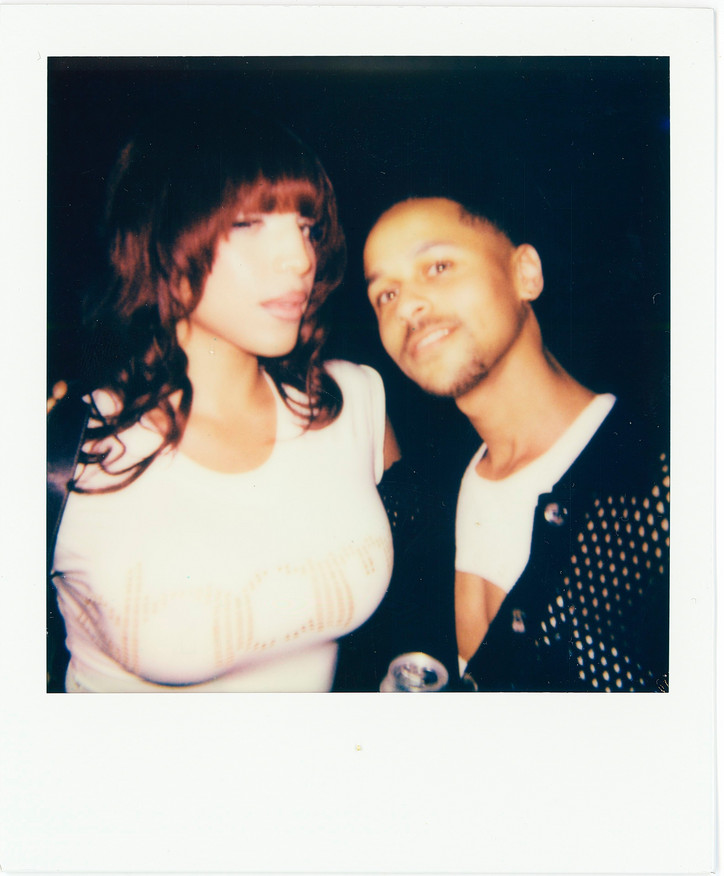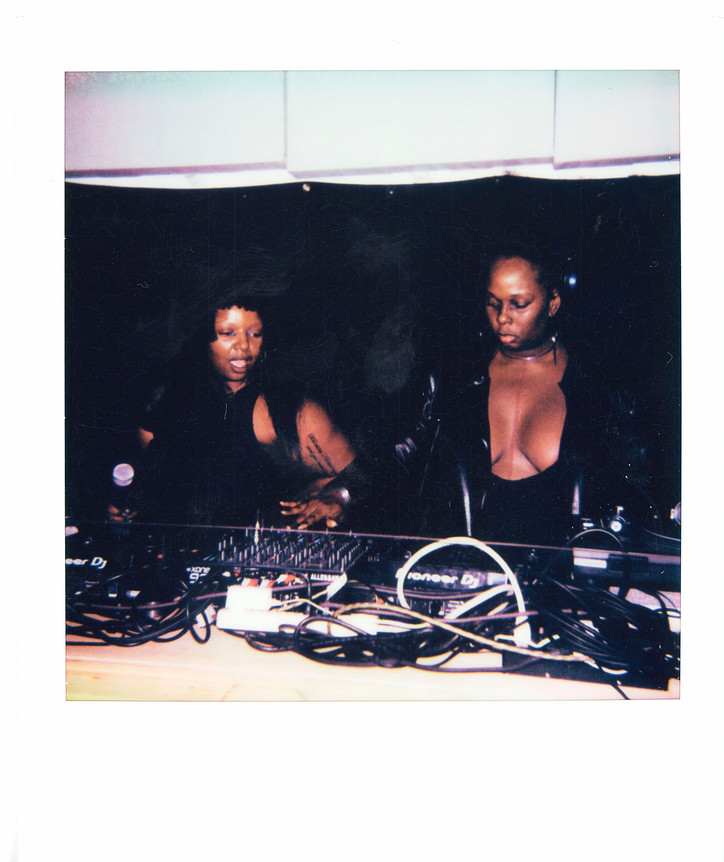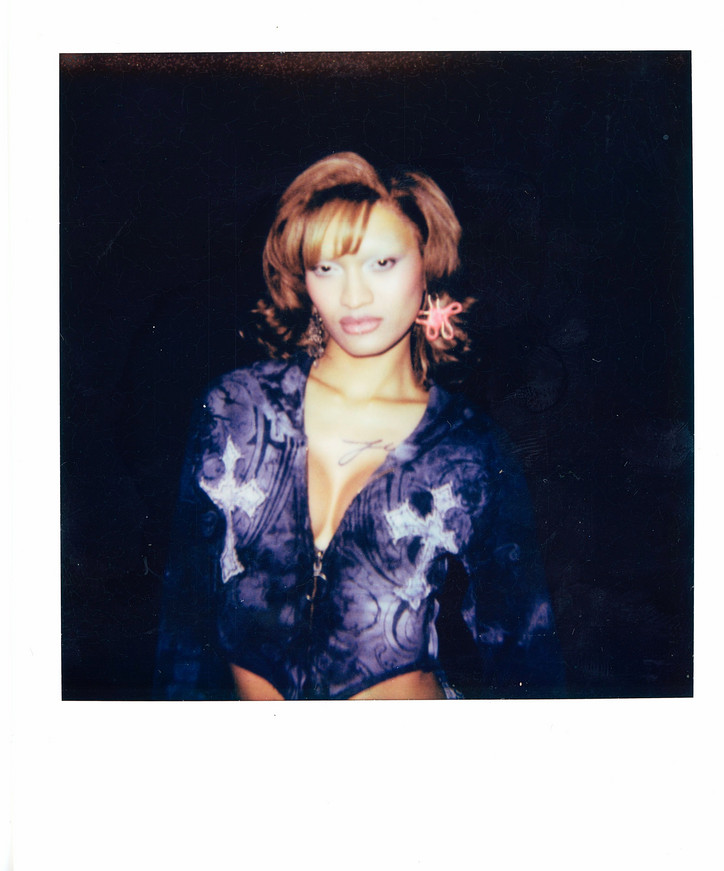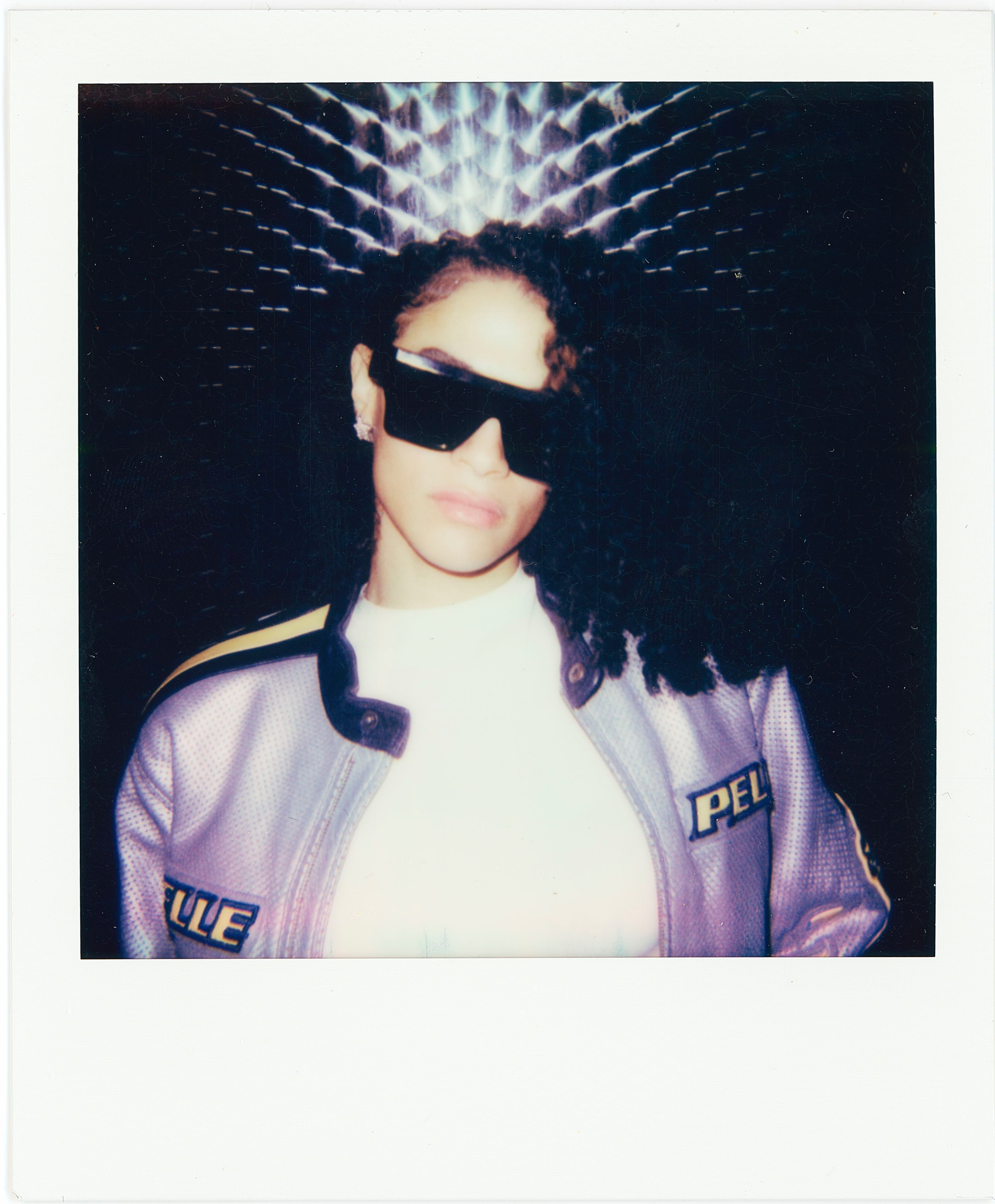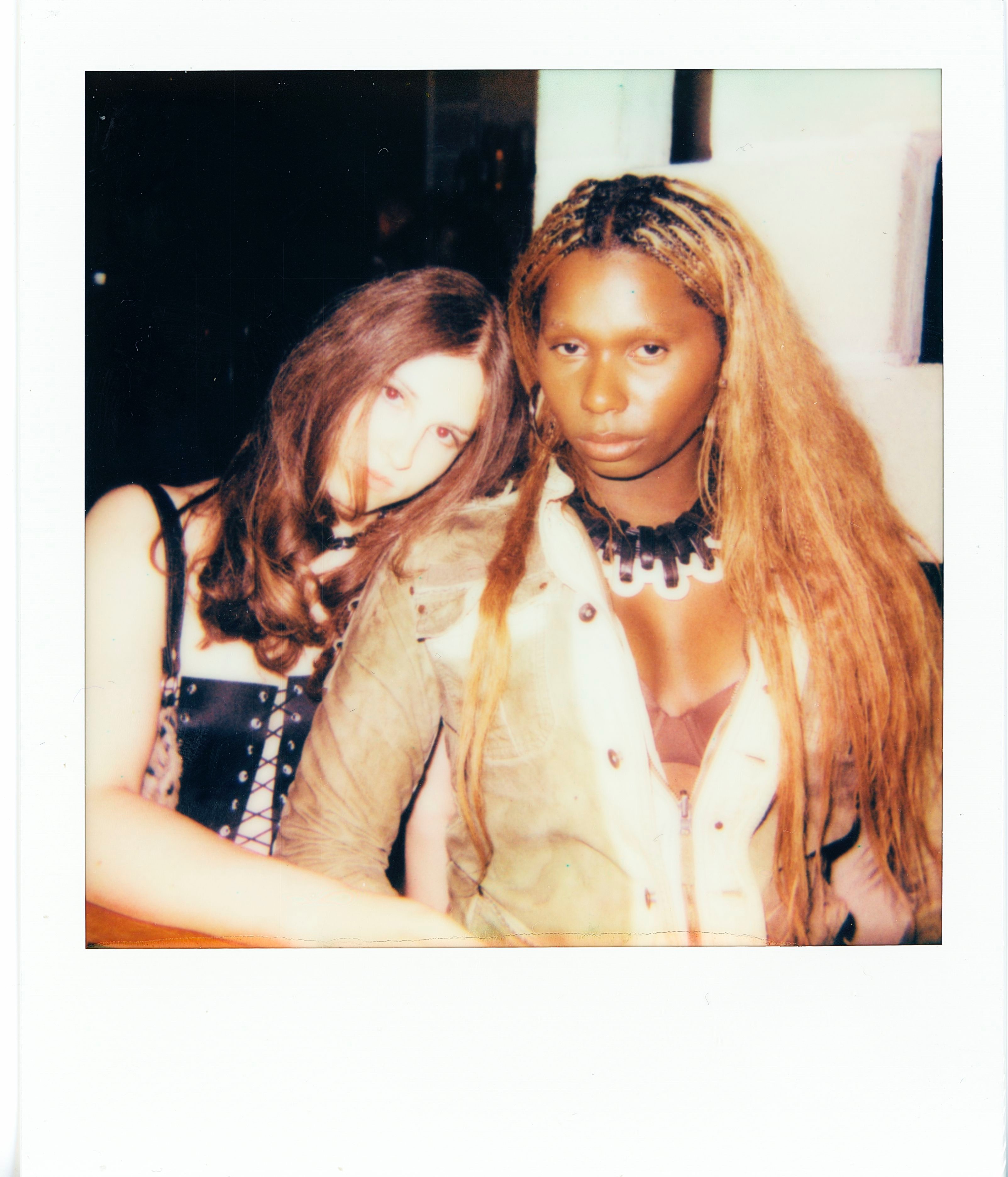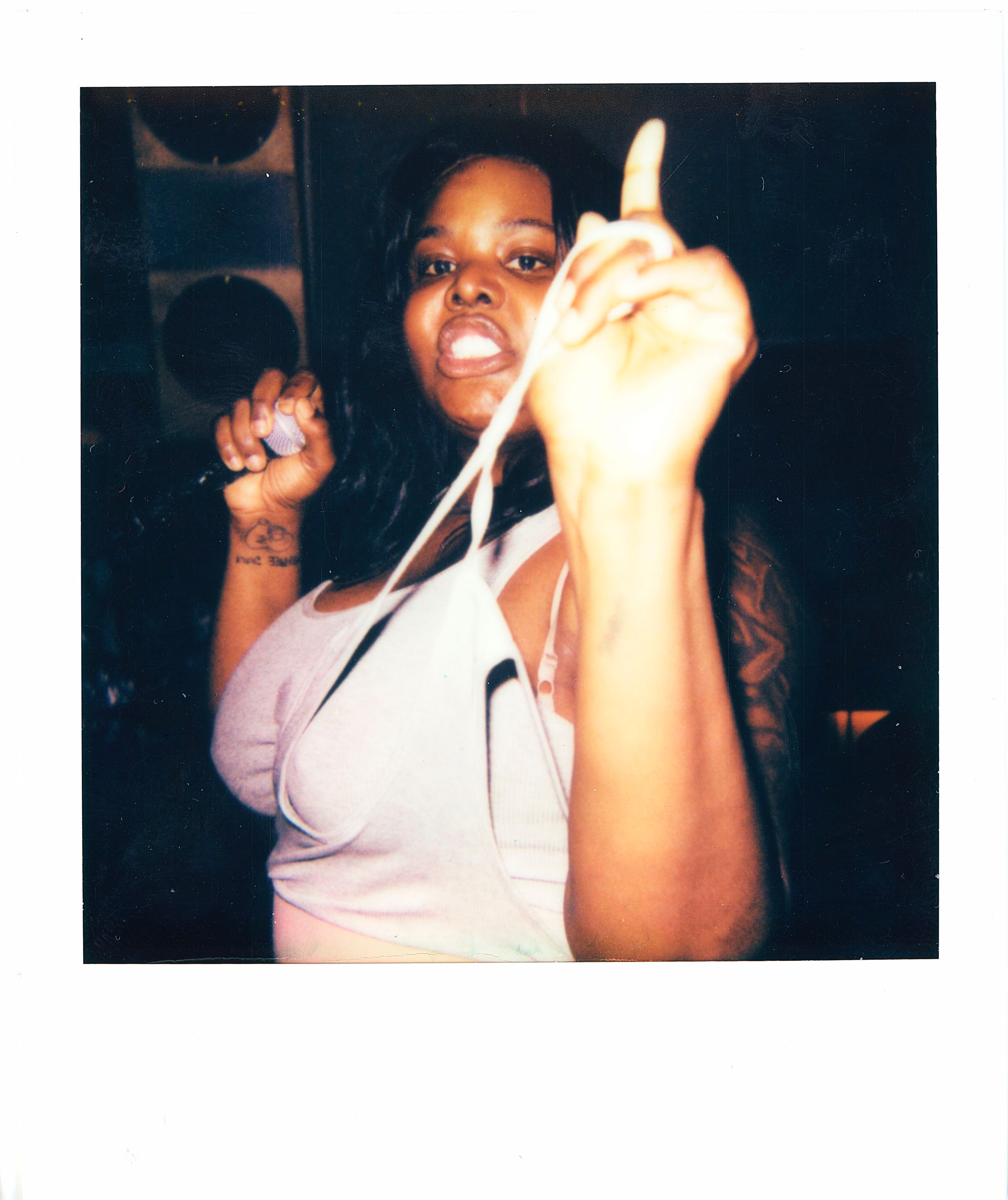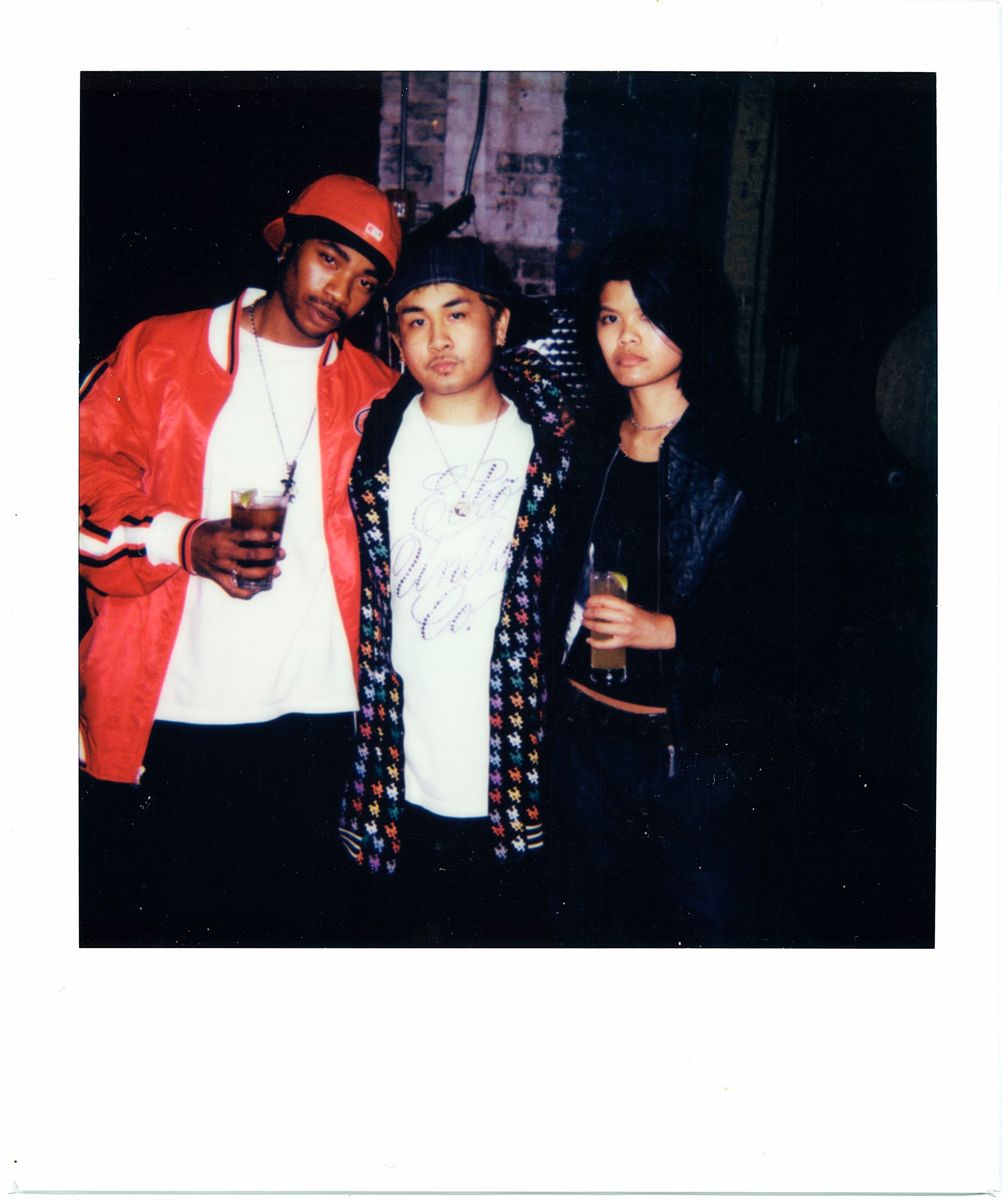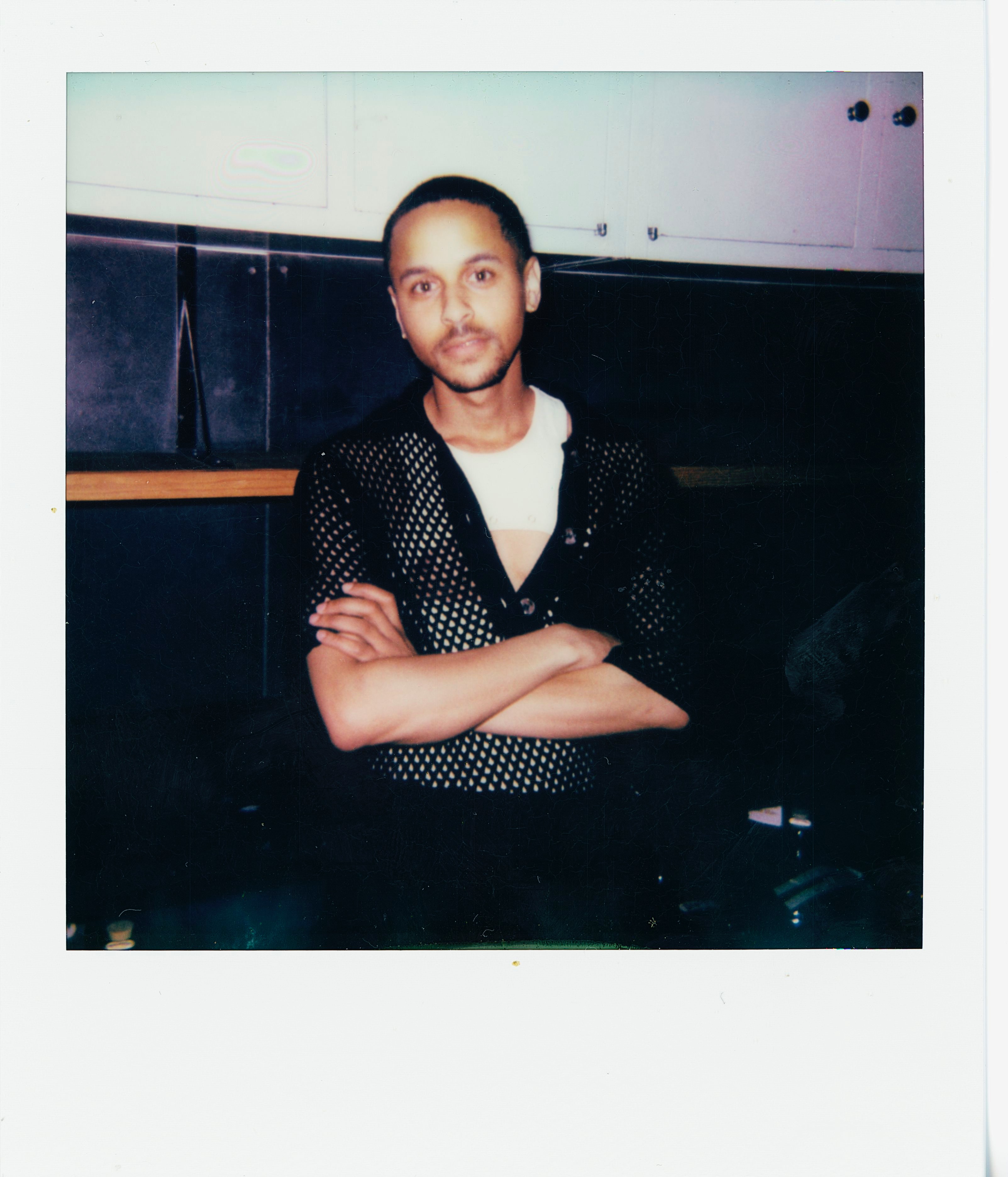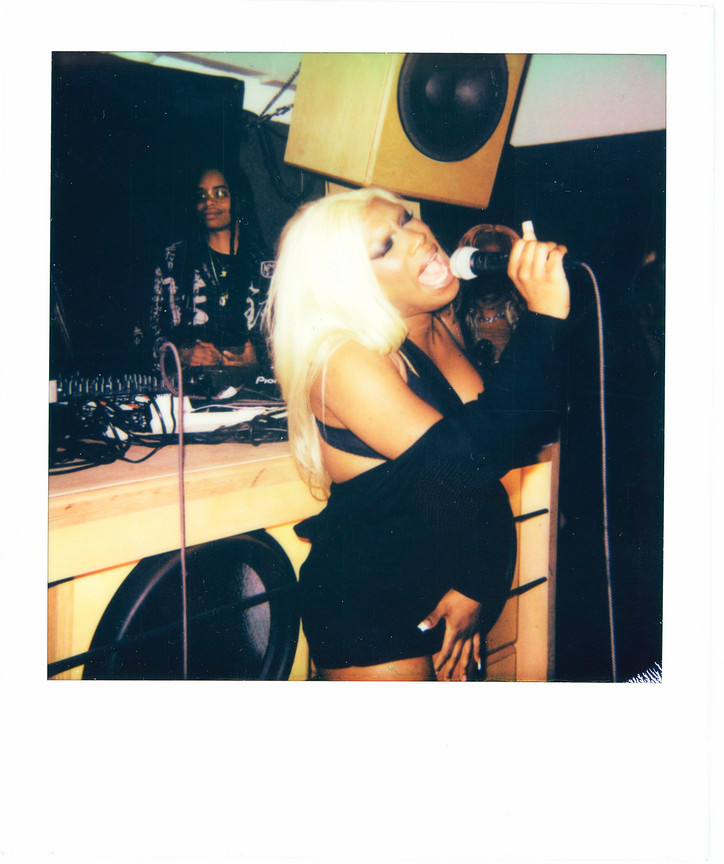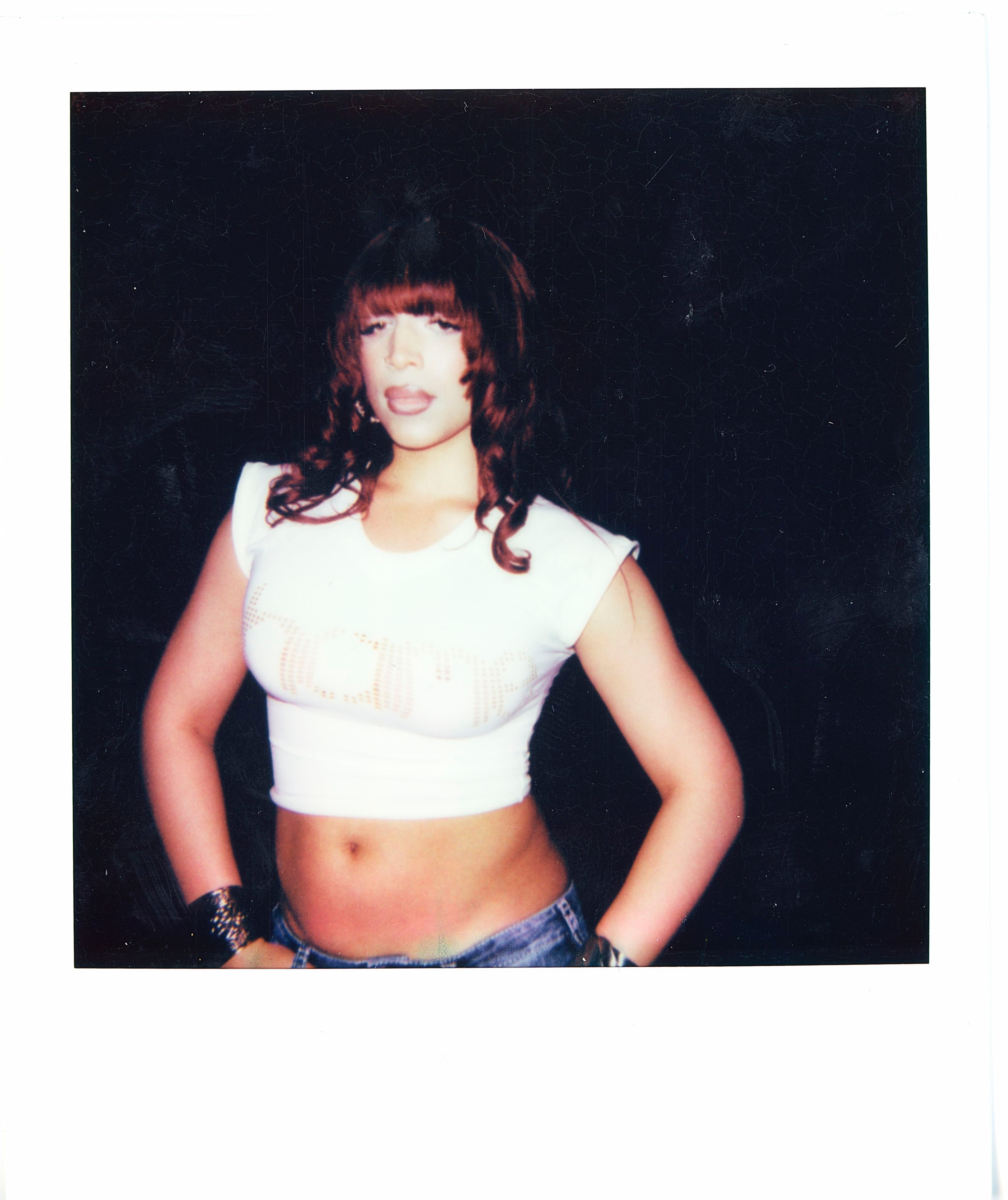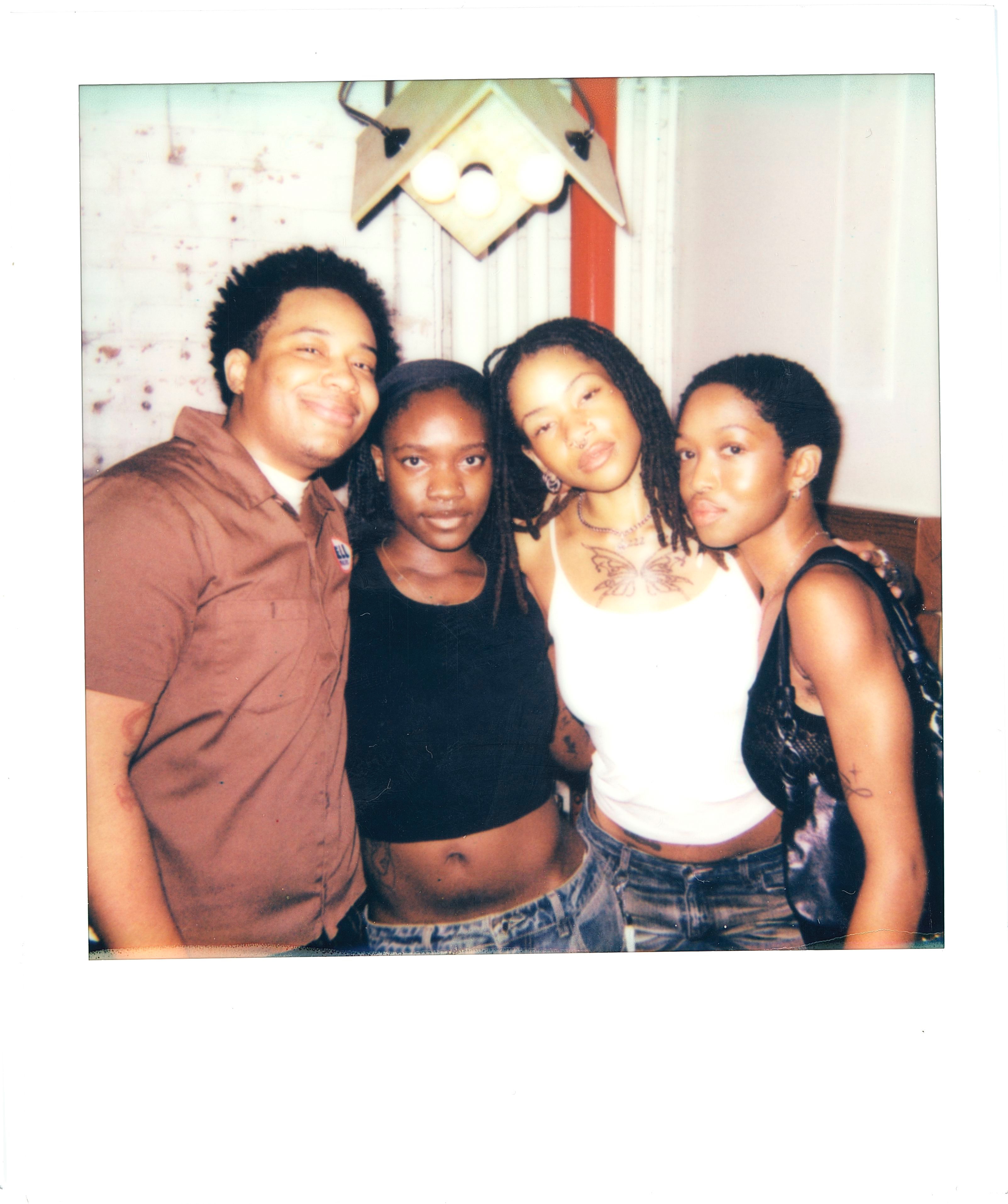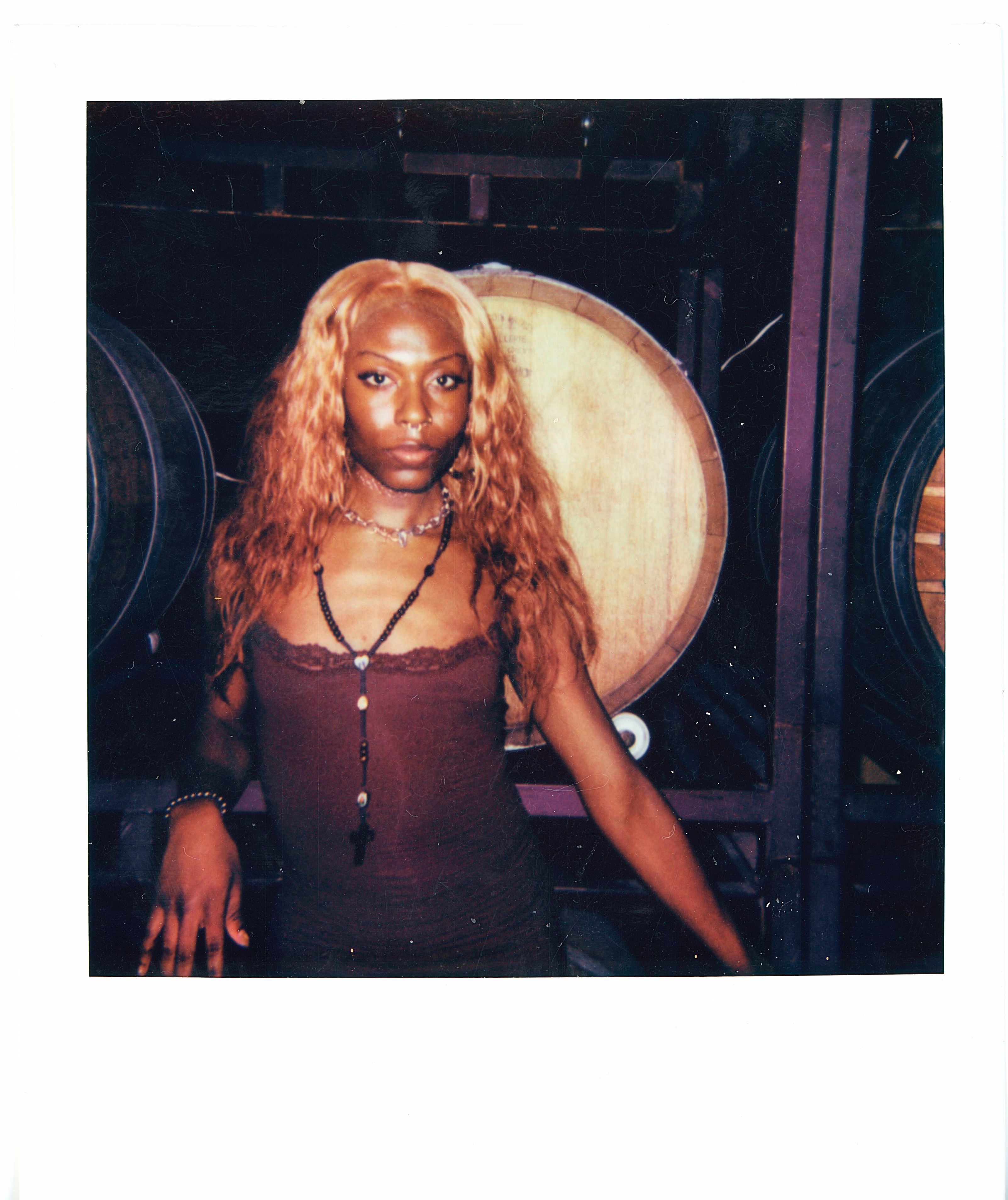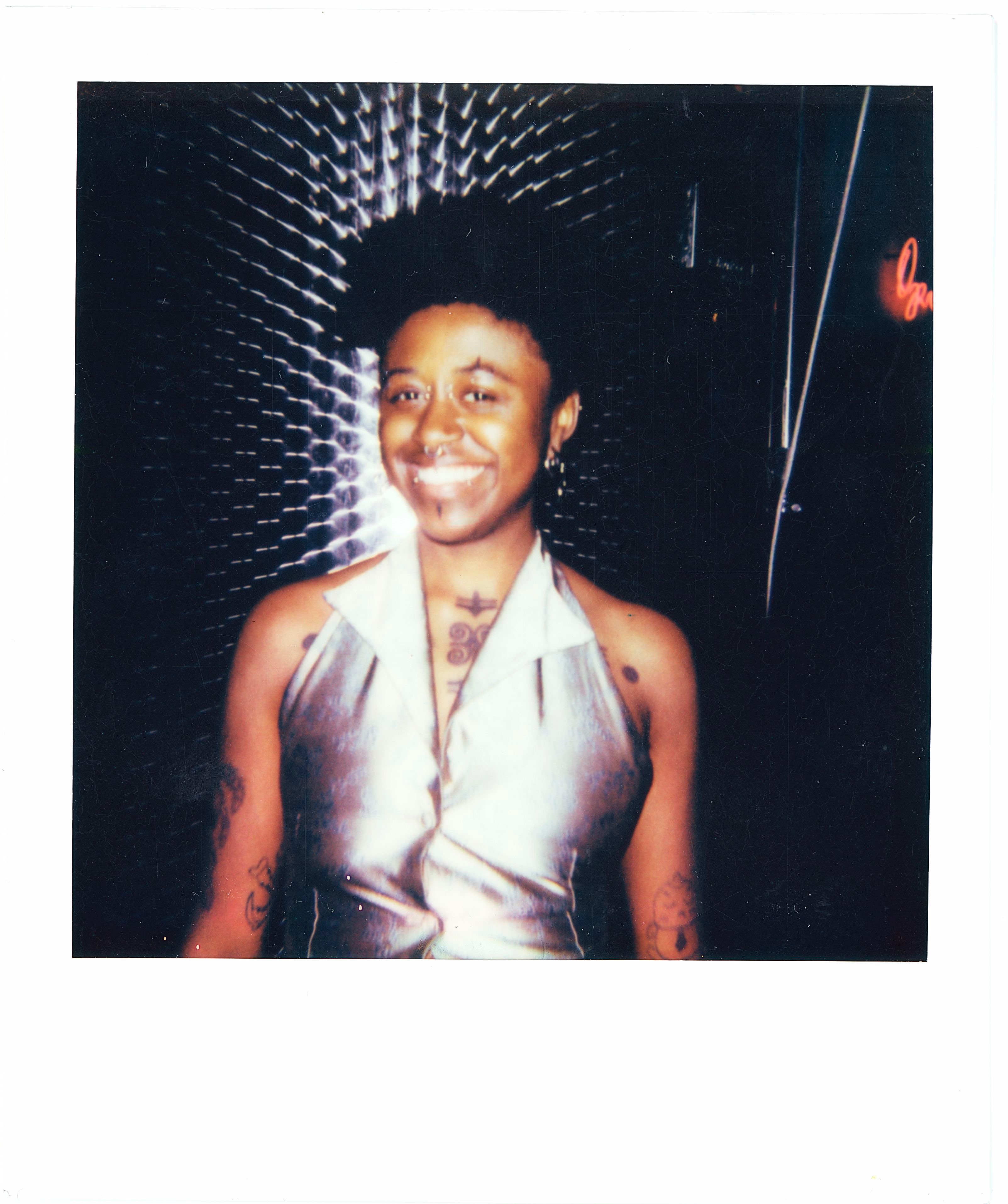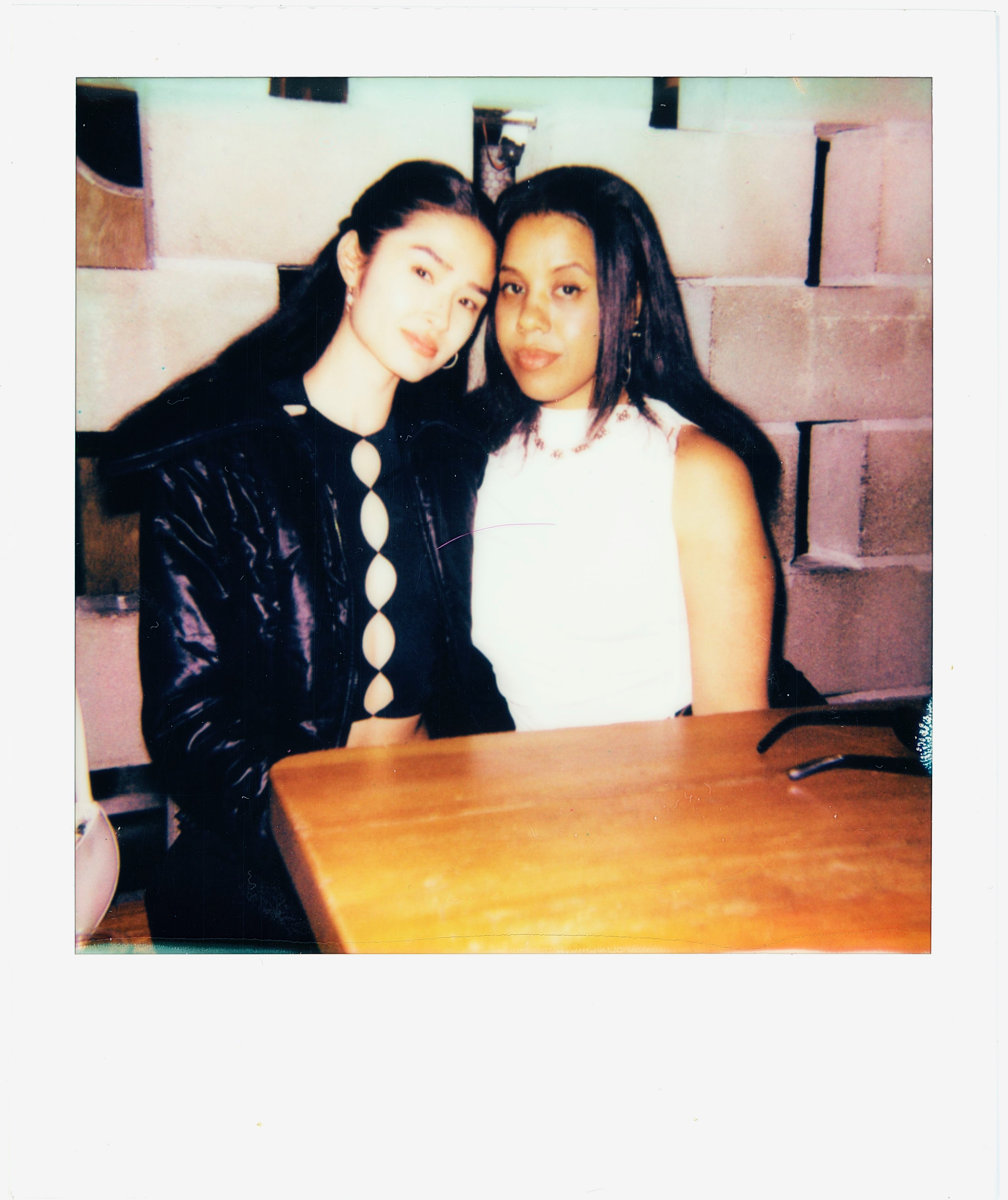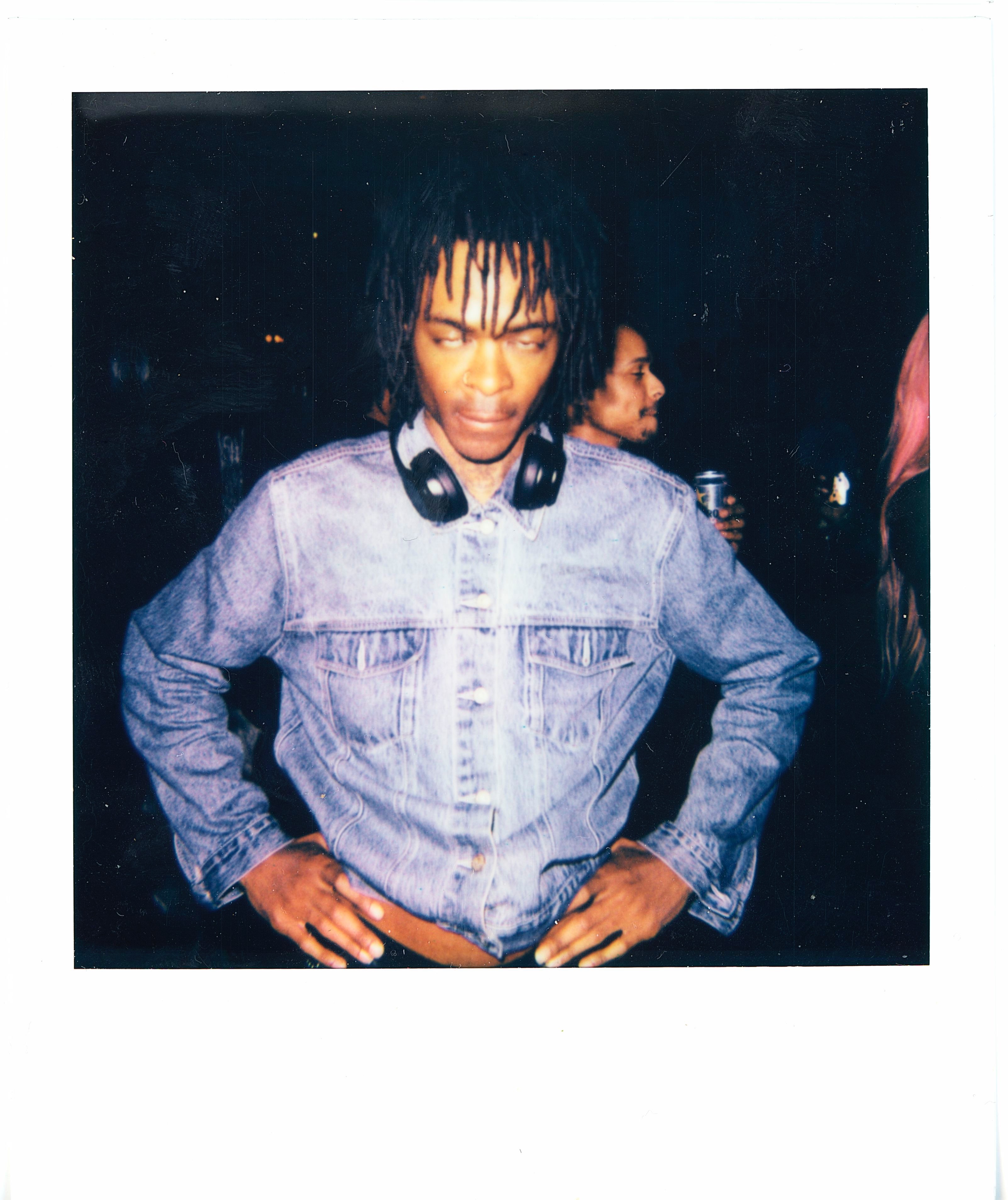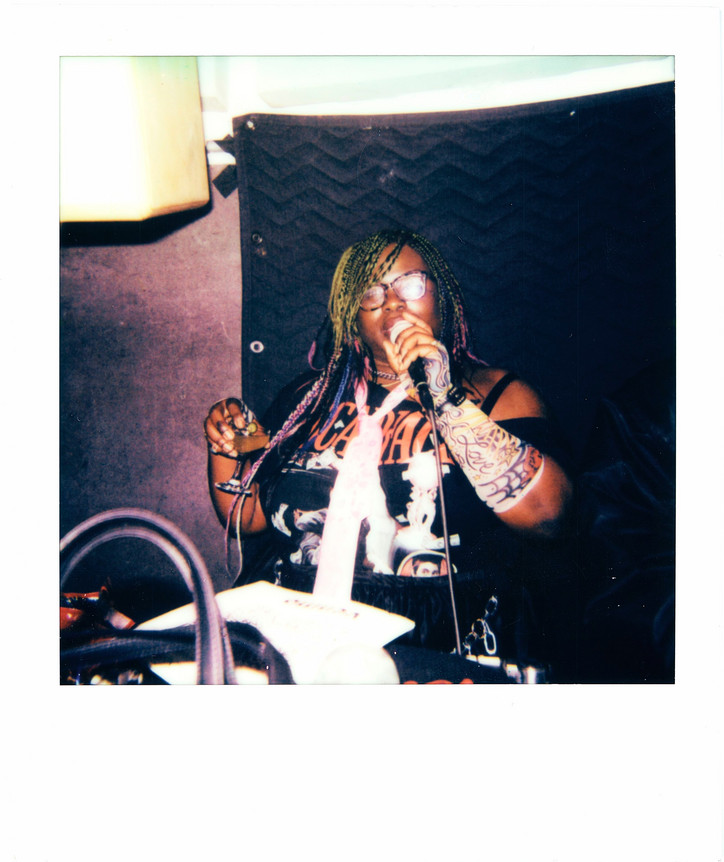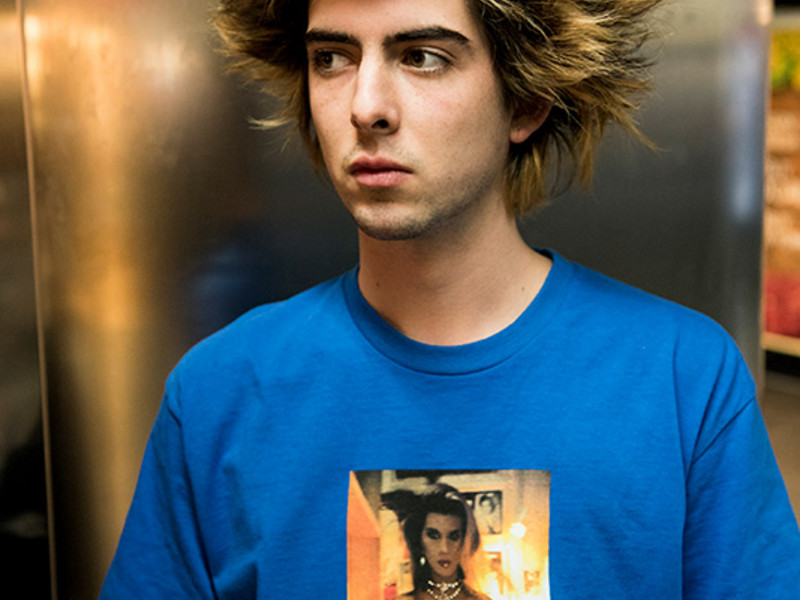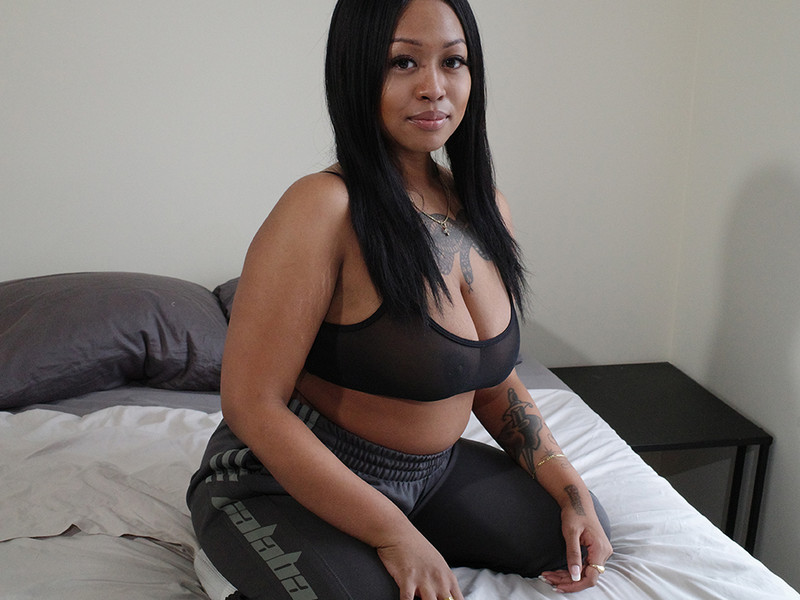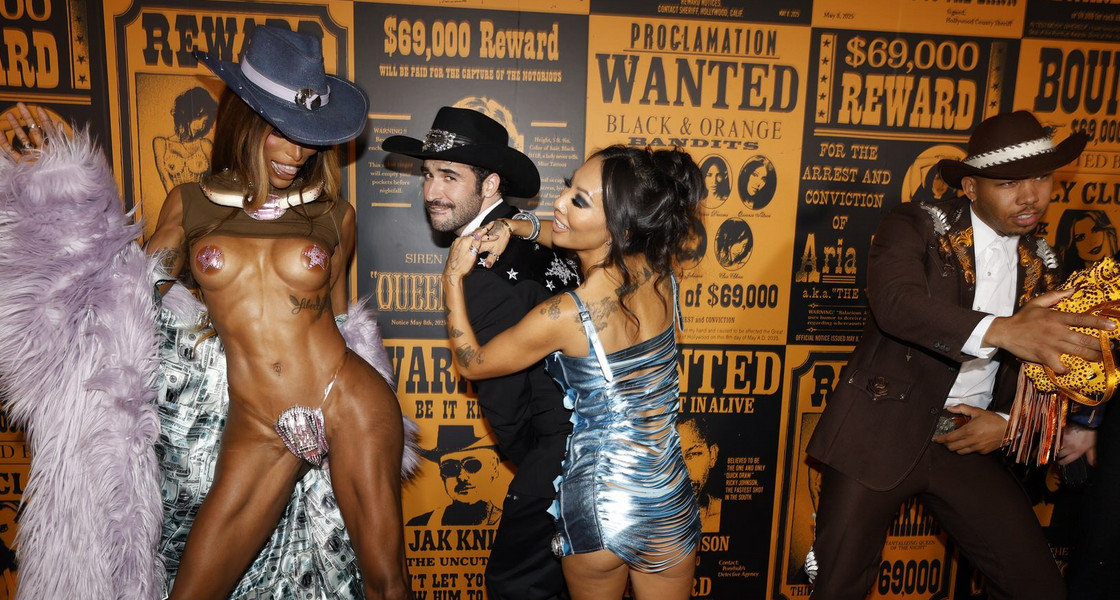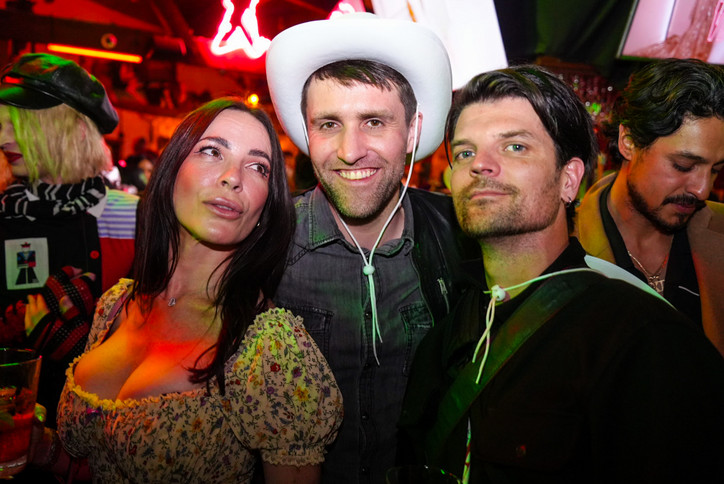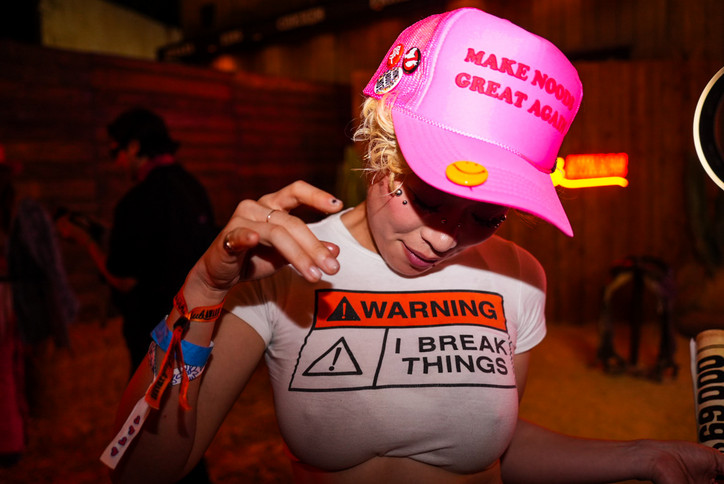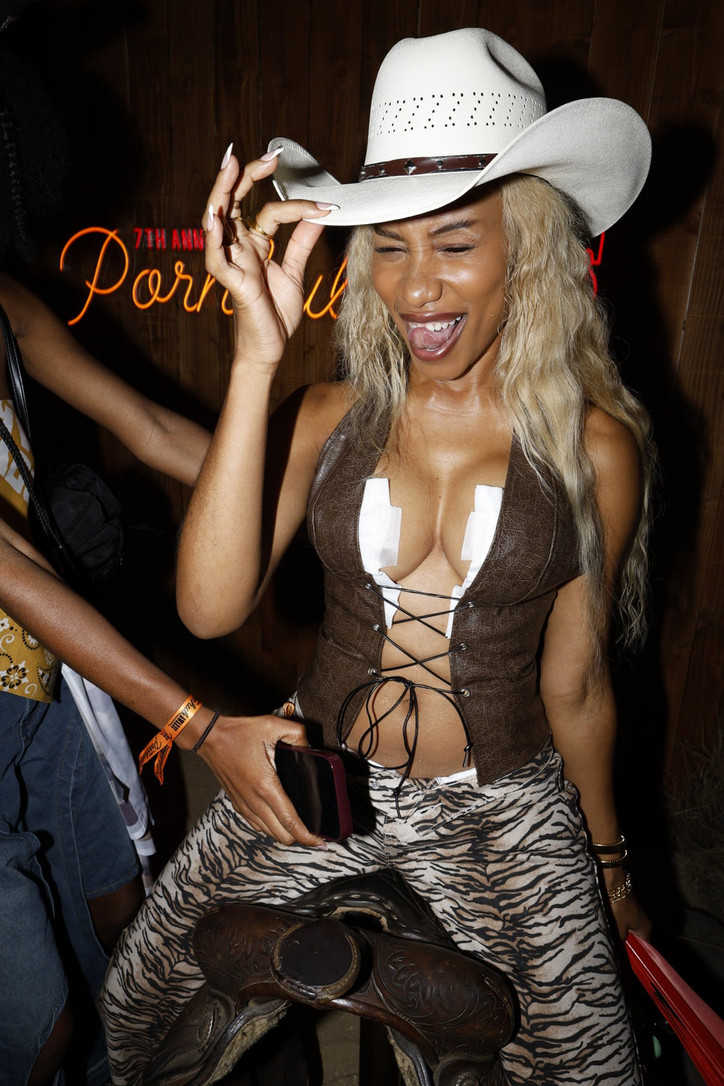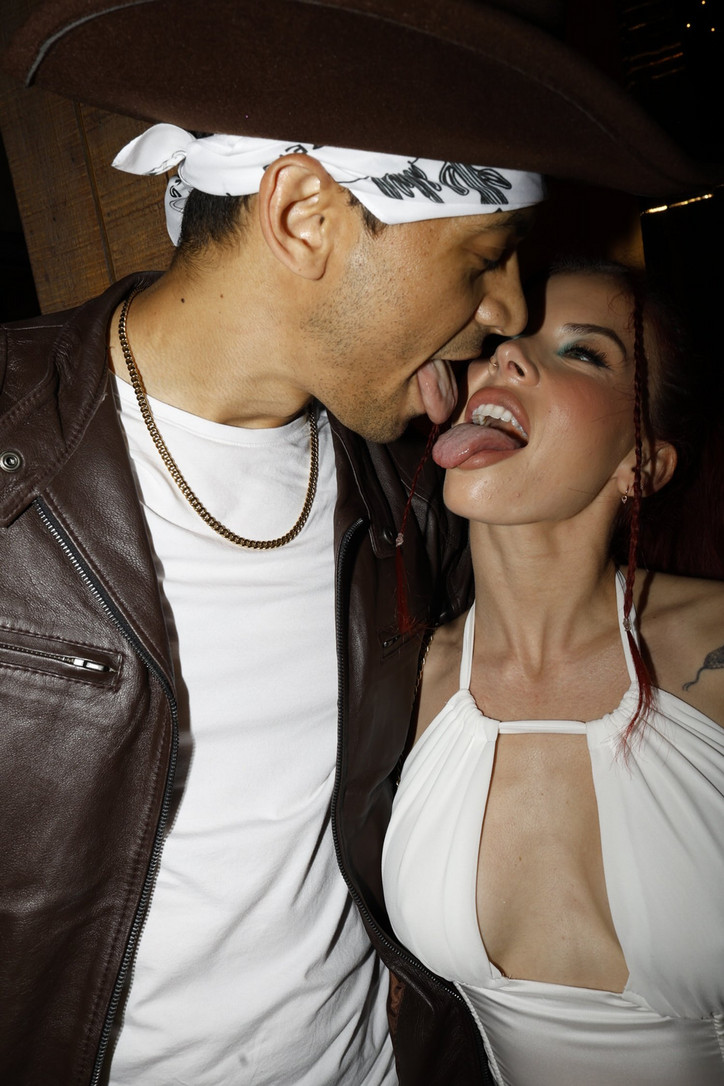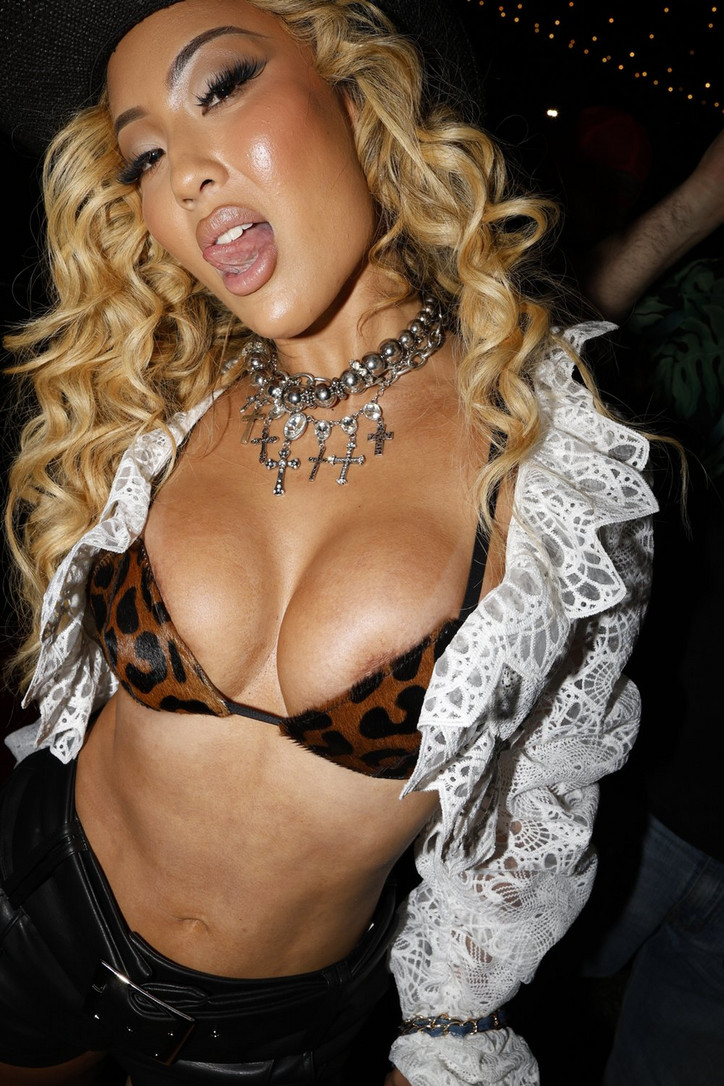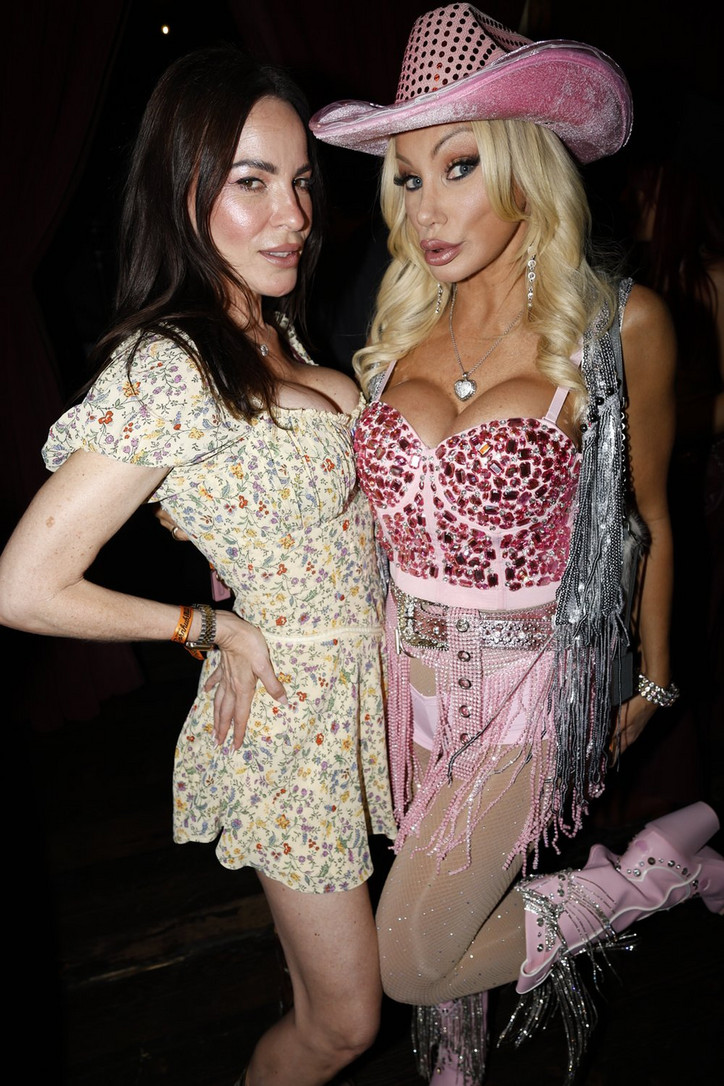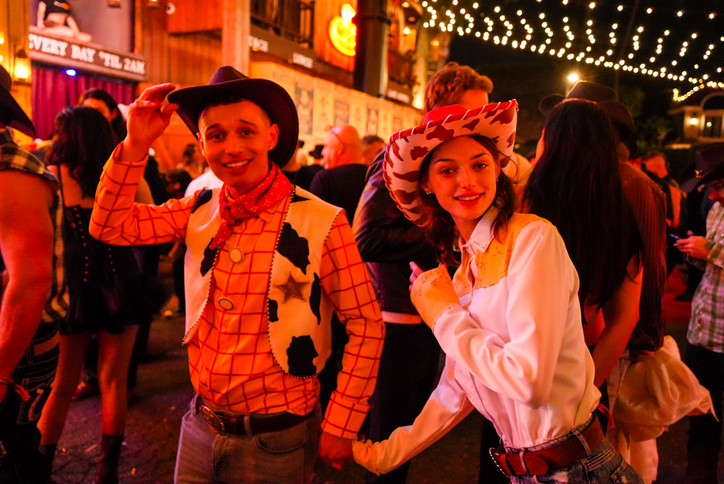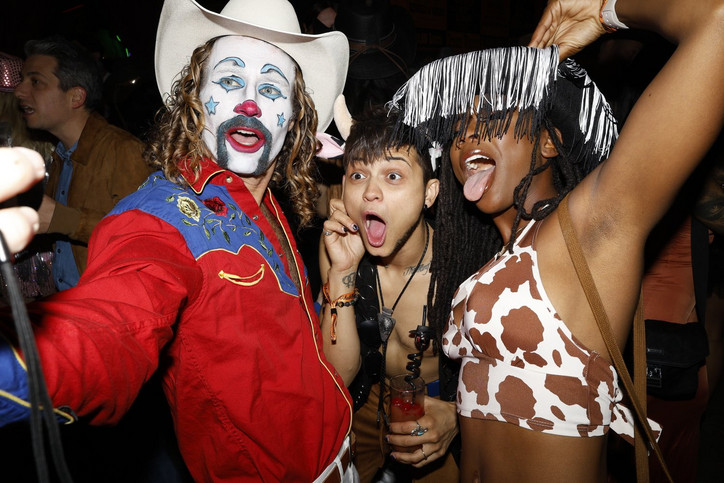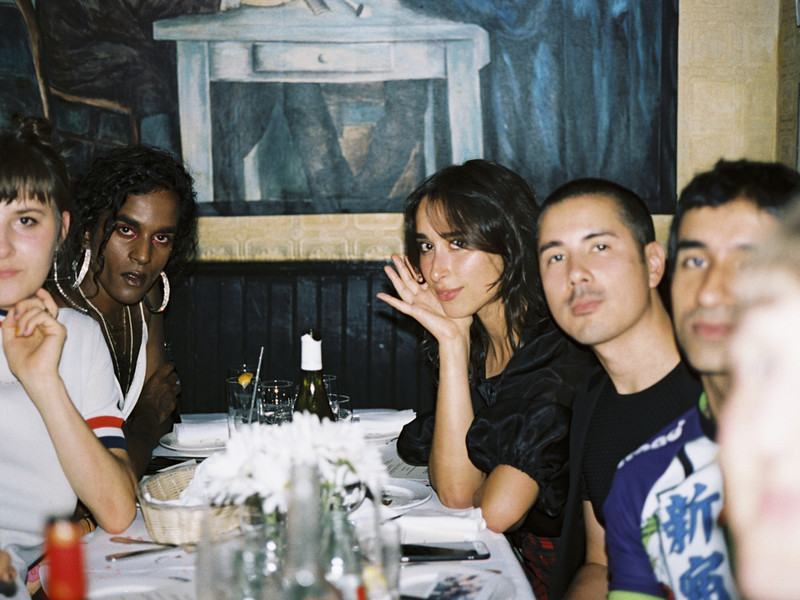Dimes Square by Matthew Gasda
The show has mostly shed its original cast, save for the literary critic Christian Lorentzen and writer-actor Bob Laine; they play a pair of aging novelists (Dave and Chris, respectively), welcomed with open arms by a group of downtown twentysomethings, mostly for their willingness to share a lot of coke. Dimes Square is anchored by its living-room set; the ensemble comes and goes—up to the roof, into an Uber, down to the bodega for a pack of cigarettes—but the couch and the coffee table stay put. Stefan (played by Dan Blick), a young, hot author with a Netflix deal, offers up the apartment as his circle’s home base. A constant stream of media types filter in to snort lines, talk shop, drink Fernet, monologue, flirt, gossip, and so on.
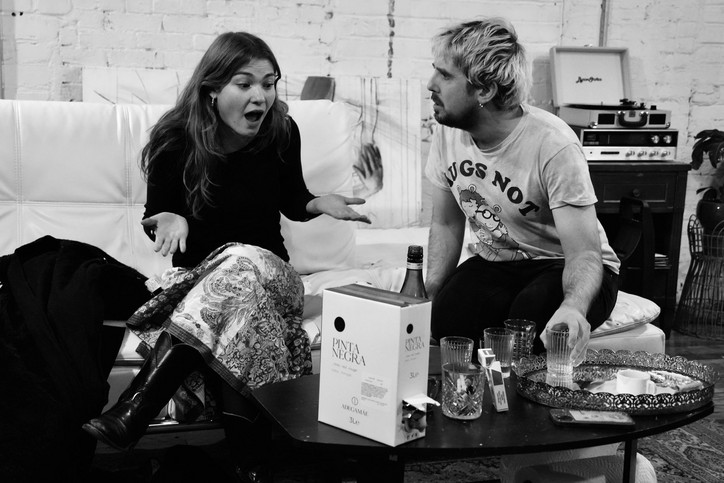
The other characters are Nate (Nick Walther), a recently-cancelled musician grappling with the dissolution of his relationship with Iris (Sadie Parker). Iris is perhaps an aspiring poet. Klay (Malcolm Callender) is a social-climbing, flirtatious magazine editor. Rosie (Anastasia Wolfe), a bisexual painter who feels above it all. Ashley (Colette Gsell) is Stefan’s undergrad girlfriend. Olivia (Cosima Gardey), his cousin and the daughter of a famous novelist. (Side note: On Dimes Square’s first run, Fernanda Amis took on this part—the daughter of Martin Amis.) Finally, there’s the filmmaking duo Bora (Asli Mumtas) and Terry (Sean Lynch), suffering from the legitimate success of their debut feature. Bora did the camera work; Terry wrote and directed.
Gasda joked that Dimes Square would transport us all the way back to 2021—a period piece, he called it, evoking recent history. The show’s debut coincided with the general moment people got sick of hearing about those few blocks between Allen Street and Seward Park. Too many thinkpieces! Clout-chasing in the name of art! Freeform made that scoffed-at TV show, The Come Up, following Gen Zers as they chased their dreams down Canal, protecting their dignity as best they could as they scanned for a seat outside Clandestino.
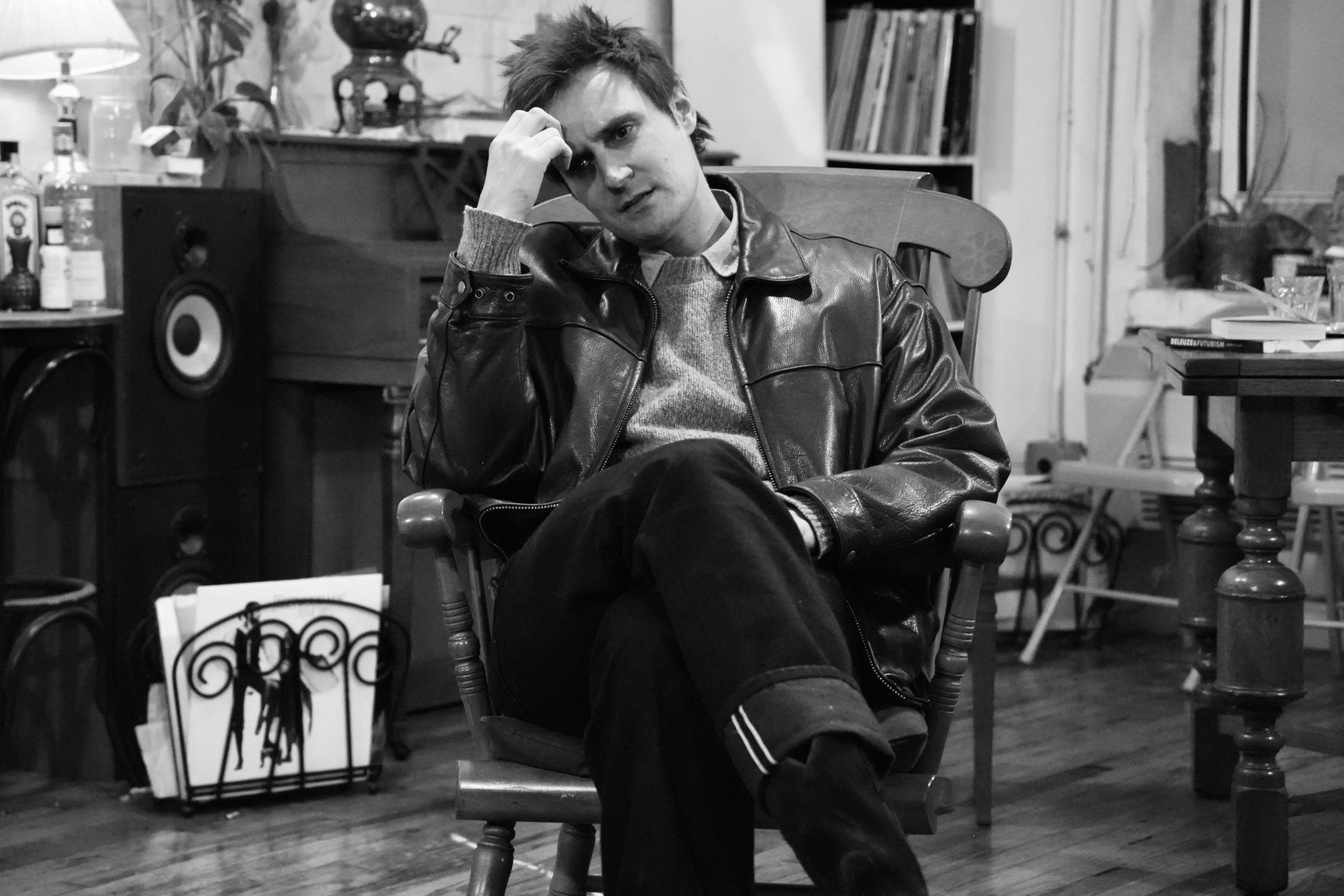
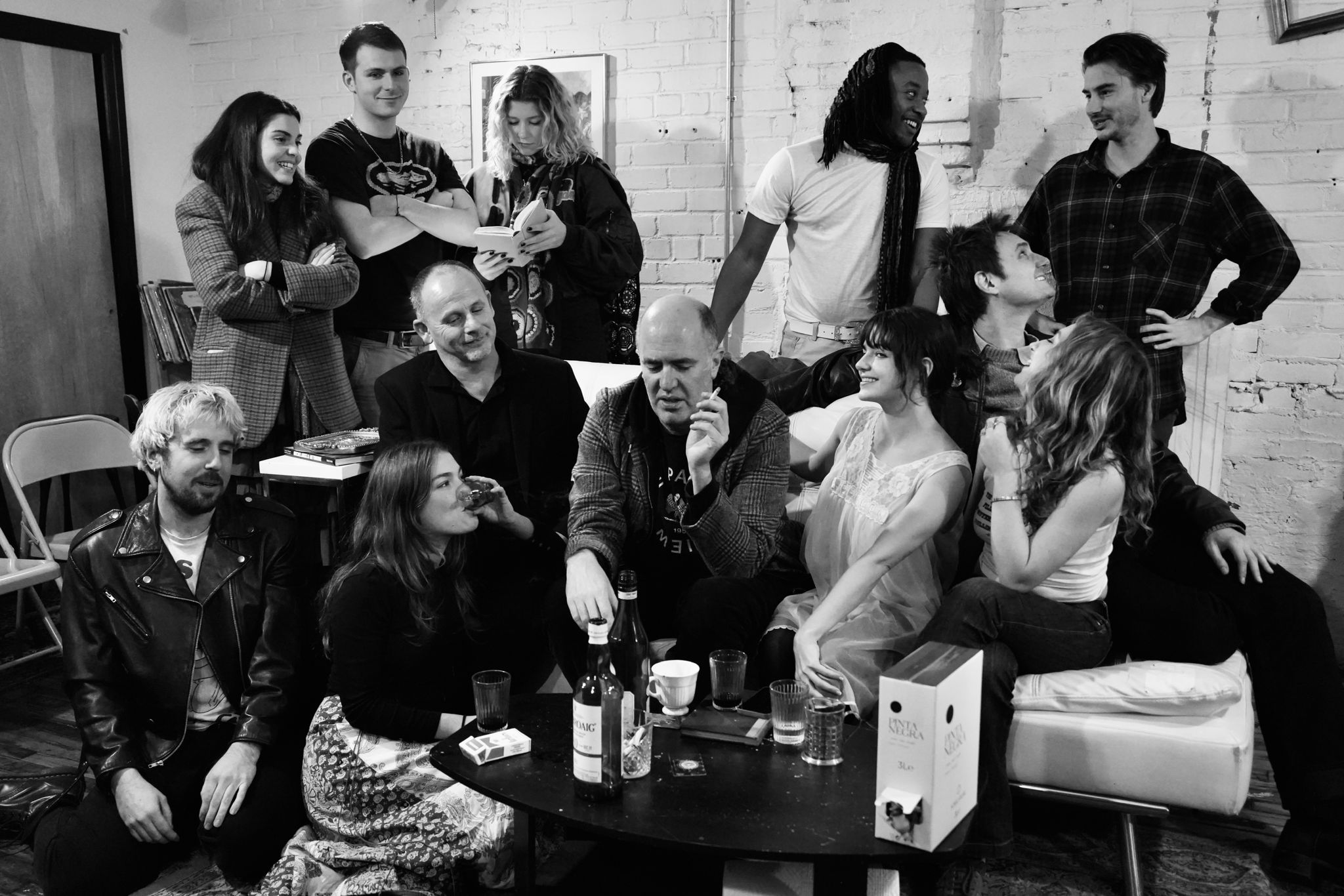
Whatever. Today, it’s just as cringe to hate Dimes Square as it is to really love it. Gasda’s play is cynical toward the scene in, I think, an original and generous way. He comes at it as an insider-outsider, but mostly as an insider: a writer who drinks Fernet and wears scarves inside, a contrarian amongst contrarians. Its comedy was solid—referential without going overboard, amusingly true-to-life—as was the flow of the dialogue, especially for rowdier scenes in which everyone spoke at once.
In 2022, the critical consensus was that Dimes Square dealt in the universal—and that rang true for this run, too. Though the characters (intentionally) verge on caricature, and though their era is niche and almost too recent to look back on even-handedly, it all comes together to paint a poignant, candid, relatable picture of “making it” as a young person in a city like New York, where optics get rewarded before passion. The bigger question than whether it held up, was why resuscitate it now?
“I wasn’t sure that I would ever do Dimes again,” answered Gasda. “But I was meeting so many people who said they moved to New York after the original run closed who wanted to see it. At first I dismissed it, but then I realized those requests were genuine, that the play was a phenomenon, that it’s part of the lore—and that people should get what they want, in a way. He went on:
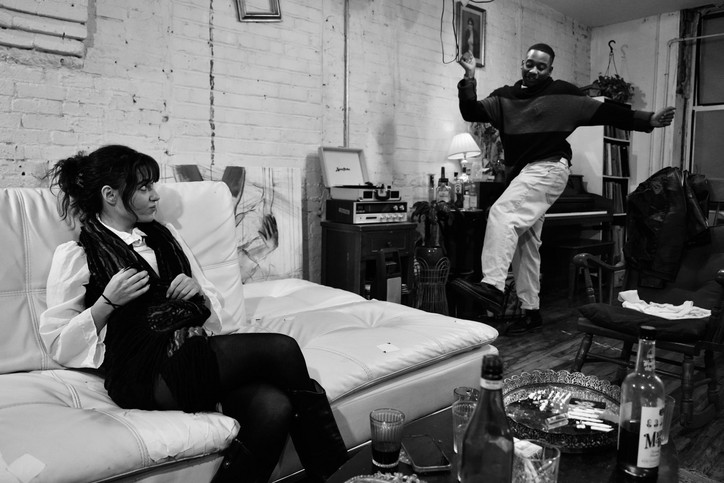
Something Dimes Square has undoubtedly achieved: new dialogue about new theater. Gasda makes being an “audience-member” uniquely accessible, ushering the uninitiated toward his other plays (like the upcoming Vanya on Huron Street, which Laine and Mumtas star in) and toward the other artists he supports via BCTR, his dedicated performance space in Greenpoint. Beyond that, he casts from his own community. He makes art about right now, against an era of nostalgia. And at the end of every show, he leads the charge to a nearby bar, staff and cast and ticket-holders welcome. It’s an interesting contrast to the vapidity or the exclusiveness of the stereotypical scene—a pessimistic play, within an optimistic project.

